|
By Anna Morgan-Barsamian, MPH, RN, PMP, Senior Manager, Training & Education, NaRCAD An interview with Jennifer Carefoot, BSc, Pharm, Academic Detailing Pharmacist, BC Provincial Academic Detailing (PAD) Service. Tags: Conference, COVID-19, Detailing Visits, Evidence-Based Medicine  Anna: Hi, Jen! Thanks for joining us on DETAILS today. Earlier this year, your team developed a detailing campaign in one week for the new COVID-19 treatment, Paxlovid, and presented on your work at our NaRCAD conference. I’m excited to learn more about this campaign. Before we jump in, can you give us some background about your organization? Jen: The British Columbia Provincial Academic Detailing Service (BC PAD) launched in 2008 and provides academic detailing to the province of British Columbia. We have 12 full-time pharmacist detailers for the entire province. The program is publicly funded by the BC Ministry of Health and our topics are chosen based on their relevance to primary care clinicians. Here are some quick facts about our program:
 Anna: Your team connects with many clinicians covering a vast geographical area! Can you walk us through the one-week development of the Paxlovid campaign that you presented on at our conference? Jen: Paxlovid was approved in Canada on January 17, 2022. The Province of BC quickly received doses and urgently needed educational sessions for clinicians in the province for safe and appropriate use of this somewhat complicated medication. The PAD team had the expertise in delivering pharmacotherapy and education through detailing visits; we worked with the Ministry of Health and the COVID Therapeutics Committee (CTC) to quickly develop materials. We were out in the field detailing within a week! Anna: That’s an impressive turnaround time to get your team prepared and out in the field! Were clinicians aware of Paxlovid when your team started detailing on the topic?  Jen: Paxlovid was getting a lot of press in the media at the time- it was the first oral treatment readily available for COVID-19. Clinicians knew they would have to know about this medication since their patients would be asking about it. Anna: New information was coming out every day in the media, which isn’t very common for other detailing topics. How was your team able to stay up to date on the emerging evidence on Paxlovid and continue to keep clinicians up to date? Jen: Our team was able to stay up to date through the excellent communication between our PAD director, Terryn Naumann, the CTC, and the Ministry of Health. We would receive updates via email or video conference daily. We also frequently met internally to share questions, successes, and challenges that we were experiencing in the field. To keep clinicians up to date, we chose to not provide them with the PowerPoint presentation from the detailing visits because the information and evidence was constantly changing. We’ve created 24 versions to date! Instead, we emailed a one-page resource to clinicians after our visits that included links to online resources that were updated in real time.  Anna: That’s one of the benefits of sharing resources virtually – the information can be updated and accessed quickly. If you were told you had to create another campaign in one week, what would you do differently? Jen: That’s a tough question! Would we have liked more detailers? Yes. Do I wish there were 24 more hours in my day? Yes. Would we have liked more clinical trial data? Yes. These are all things that are outside of our control. We did the best we could with the evidence and resources we had. I don’t know if we would do it any other way if we had to do it again under the same circumstances. Anna: What you did worked. Do you have any evaluation data from clinicians that you can share? Jen: Our formal evaluation showed:
 Anna: I’m not surprised by these results! Your team has shown impressive data from myriad detailing campaigns. Before we wrap up, can you tell us how your partnerships and team helped make this campaign successful? Jen: It’s important to partner with others who have expertise in the therapeutic area you’re detailing on. You don’t need to reinvent the wheel with evidence. Pull from data and evidence that other AD programs or reliable organizations have previously put together and be open to the idea that evidence changes. Also, remember that it really does take a team! Everyone brought something critical and unique to the table. Our administration team was instrumental in getting our visits booked and our director was transparent with our team throughout the process. Our team was excited, enthusiastic, and proud to have the opportunity to provide this education to clinicians in our province. Anna: Having a team that is open to a challenge and eager to stay up to date on evidence is so important. It’s not realistic for programs to have to create a campaign in a week, but if they ever find themselves in that situation, we know we can all turn to you and your team for support! Have thoughts on our DETAILS Blog posts? You can head on over to our Discussion Forum to continue the conversation! 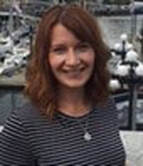 Biography. Jen is an academic detailer for the BC Provincial Academic Service since 2016 serving beautiful South Vancouver Island. She is passionate about translating evidence to practice, reducing polypharmacy and shared decision making. In her spare time, she enjoys running, gardening, travelling, and spending time with her family outdoors at the lake. 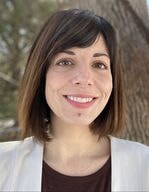 Bevin Shagoury NaRCAD Deputy Director Tags: Conference, COVID 19, Detailing Visits Unless you’re delightfully old school, I’m going to guess that you’re not holding the page you’re reading in your hands. That’s been a tough adjustment for those of us who prefer a paperback to a Kindle, or for those of us who miss unfolding an inky newspaper in the morning. In either case, this trend toward the intangible has been in motion for a long time, even pre-pandemic (if you can still imagine a world without COVID). We’ve been forced to step up the transition from tangible to virtual, seemingly at warp speed. And yet, as always, we’ve found ways to adapt. In a field like ours, where our work relies so heavily on the intricacies of human interaction, the inability to see nonverbal cues (at least, none below a clinician’s shoulders) during an e-detailing session could have easily thrown us off. If AD was the focus of a Netflix series, we could have entire episodes that depict the harsh reality of being “ghosted” after setting up a virtual visit, or trying to engage with a clinician who’s typing in chart notes while eating a sandwich.  Yet, even with these challenges—even with clinicians being pressed for time more than ever, and with COVID pulling attention away from other public health crises—you showed up to connect with what you had to offer. When you showed up, sometimes it was on a screen, sometimes it was with a mask that made it nearly impossible to show your own facial expressions, and sometimes you realized you just couldn’t make things happen that day. Maybe you were involved in COVID response work, filling a temporary gap elsewhere in your organization, or maybe you needed to step back to take care of yourself or the people you love. NaRCAD’s pride in this community isn’t a clickbait story about tenacity or adaptability in times of challenge, or about meeting setbacks with innovation and optimism. It’s about the reality that, in our field, demonstrations of empathy matter just as much as good evidence. And it’s not just about the importance of expressing that empathy to the clinicians who are taxed, or to our colleagues who are exhausted. It’s about recognizing that the important work we do as health educators requires us to offer that empathy to ourselves. 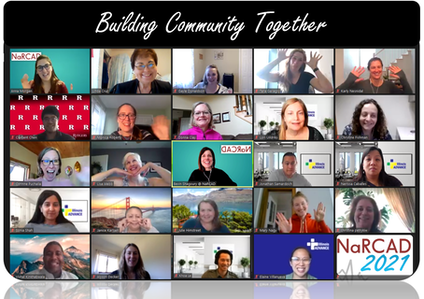 As we spend time celebrating the innovations and adaptations we’ve made to our AD interventions this year, I urge you to revel in the relational successes that deserve equal time in the spotlight. Continue to be as present as you’re able, with clinicians and with your detailing peers alike, even if it just means saying, “That sounds really difficult,” or “I understand.” Your validation and support of one another illustrates that acknowledging our shared humanity is just as valuable as bringing clinicians the tools they need to tackle what comes next. So, what comes next? A chance for a collective exhale is a terrific start, along with connecting with each other and continuing to strengthen our incredible community. Our conference is a chance to witness and learn from all that we’ve created together this year, and to allow ourselves a pause to take it all in and recharge. Couldn't join our event? Visit the Conference Hub for highlights. Have thoughts on our DETAILS Blog posts? You can head on over to our Discussion Forum to continue the conversation! Biography.
Bevin Shagoury, Deputy Director, NaRCAD Bevin manages NaRCAD’s strategic partnerships, building collaborations with public health leaders at the national and federal level. With career experience in building learning communities to increase engagement and sustainability, Bevin has expertise in creating interactive, interdisciplinary training curricula at healthcare-based non-profits. In collaboration with the dynamic NaRCAD team, Bevin facilitates NaRCAD's virtual and in-person learning sessions to encourage hands-on skill development and best practices sharing amongst peer programs. Read more. Overview: Mary Moody joins us from the University of Illinois at Chicago (UIC) College of Pharmacy to discuss the passing of an 2019 act providing AD to Medicaid prescribers in Illinois state, and how AD programs with similar legislative aspirations can follow in UIC's footsteps in securing support and funding for their work. Written by: Winnie Ho, Program Coordinator Tags: CME, COVID-19, Health Policy, Opioid Safety, Program Management  Winnie: We’re very excited to have the opportunity to discuss with you regarding the efforts behind the passing of legislation in Illinois that helped cement the provision of AD services to Medicaid prescribers across the state! But before we get deeper into that, can you tell us a little bit more about yourself and your AD-related work? Mary: I’m an Associate Dean for Professional and Governmental Affairs at the UIC College of Pharmacy, in addition to a Clinical Associate Professor. I started in Drug Information and for years, was managing our Drug Information Center which supports healthcare professionals around the country. We’ve been working with the state for some time now, supporting the Medicaid prescriber population with the prior approval process. Within that timeframe, we started to look into AD to get a better understanding of how we could implement this for our providers.  W: That’s a background that certainly lends itself to promoting AD. Can you walk us through what this legislative act details? M: The bill outlines the development of a program to provide AD to Medicaid prescribing physicians. The bill also includes two specific components – one of which was an agreement to provide free CME which is available on our website, and the second of which was establishing a toll-free drug information phone number and e-mail for providers to reach out to us after their visit. We have trained drug information specialists who can answer any questions they have about medications. W: It’s important that this act received approval and support from the Illinois General Assembly. Can you talk to us about how this bill came to the floor and how it came to pass?  M: One of our legislators – Representative Theresa Mah – had attended the 2018 National Conference of State Legislators, which is an organization that acts as a percolator for new ideas about new laws. There, she learned about AD as there have been similar legislative acts established in other states, such as New York. She became really interested in bringing something similar to Illinois. In my role with Professional and Governmental Affairs, my responsibility is to keep track of proposed bills that are in the hopper, and when I saw that this bill was coming up, I was like wait, this is perfect! I set up a meeting with the representative to describe the vision and plans we had at UIC College of Pharmacy.  At this point, UIC had completed a pilot with AMITA Health to look at the benefits of AD in opioid prescribing through a CDC grant. Because of this prior experience, we were recommended to the state as a partner for this initiative. Eventually, Dr. Todd Lee and I were invited to present in front of the state House and Senate committees where we introduced AD and answered any questions the representatives had. It was ultimately passed through House and Senate unanimously. I felt pretty great about that.  W: I’m glad to hear that the legislators really prioritized this. For the world of AD, this is a major win, especially as other AD programs may be interested in replicating your success on the legislative floor. M: The legislative route is incredibly useful because it helps give me a higher level of comfort knowing that my budgeting for our AD work is likely to come on an annual basis. W: I’m curious about how you were able to introduce AD to a brand new audience and persuade all of them that this work was something they ought to prioritize.  M: Since there have been several places that have established the legislation including New York, North Carolina, Pennsylvania, Maine, Massachusetts, Vermont, and Washington D.C, we were able to establish that there was precedent and could show them previous models. We were able to demonstrate how this would benefit Illinois, especially in reaching our targets of improving prescribing, reducing emergency room visits, and reducing hospitalizations for our chronically ill. We discussed how there were a large number of individuals in our state who were Medicaid recipients that suffer from multiple chronic conditions, and that it was difficult for our prescribers to stay up to date with so much information coming at them. We wanted to provide the best evidence-based, non-biased information.  W: Your program kicked-off your work by focusing on the opioid overdose crisis. How was this chosen as a starting point? M: It’s a public health crisis that is an absolute priority in Illinois. UIC has been working on research in academic detailing and the impact on opioid prescribing. We could match our pitch for AD to this current issue, it helped our presentation to the committees a lot. W: When it comes to legislation, sometimes it can require many things to align. In this case, we’re trying to align healthcare interests, research, and the policy decision-making process. There’s always a lot of competing interests and AD is certainly not the only tool in the toolkit towards improving patient outcomes.  M: For anyone looking to intertwine AD with their state legislative process, you need to understand what your state’s priorities are. You can start by looking at state plans and guidelines for major health issues, just like the opioid crisis. No one is against making these health issues better for everyone, but you may need to do more research to understand where your program fits in and more importantly, who the movers and shakers in your governance are. W: Right, these connections are critical to building support. M: One of the things that can be frustrating is not knowing where to start. You can start by talking with local universities, your state and local public health officials. There’s state pharmacy and physician organizations who may have more experience with the legislative process. Look at where your opportunities to ask for help are. Ask people for their input. You don’t have to do this all on your own.  W: Is there anything else that’s useful to prepare before choosing the legislative route? M: Having done a pilot makes a huge difference, because it shows that it can work in some part of your state. It shows that you know what might work and what won’t work. It can be hard to get a pilot done without a lot of funding, but sometimes you’ve got to use a little sweat equity, bite the bullet, and just do it. It doesn’t have to be large. You can work with a local health department to identify physicians that they have good relationships with already, or a county medical society. Having data ready is really important. W: All of this is valuable insight, thank you Mary! Although COVID-19 has interrupted some of these AD plans, what is your hope for what passing this legislation will mean for AD in Illinois?  M: Our current legislation specifically mentions supporting Medicaid providers. The goal is to expand it to all prescribers across Illinois. COVID-19 has also taught us a lot, and changed a lot of opinions on telehealth. I think as people become more comfortable with this platform, it will change how we approach AD. We’re also looking at expanding beyond physician prescribers to include Nurse Practitioners and Physician Assistants. It’s harder to get access to them. It’s an uphill battle to get names and contact information, and to know who the right providers are. But it’s important because NPs and PAs account for a large portion of prescribers for this patient population. W: I think we’ll definitely see a ripple effect, and hopefully see AD take hold more broadly. Have thoughts on our DETAILS Blog posts? You can head on over to our Discussion Forum to continue the conversation! 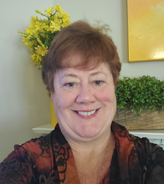 Mary Lynn Moody BSPharm, is the Associate Dean for Professional and Governmental Affairs and a Clinical Associate Professor in the Department of Pharmacy Practice at the University of Illinois Chicago (UIC) College of Pharmacy. Ms. Moody graduated from the University of Illinois Chicago and completed a PGY1 Residency at Northwestern Memorial Hospital in Chicago. Ms. Moody’s clinical practice was in Drug Information at UIC. She is also currently the Director of Continuing Education at the College. In January, 2020 Mary was involved in launching the Academic Detailing Program at the college. Innovations in e-Detailing: Using Digital Platforms to Increase PrEP Prescribers in Oregon4/15/2021
An interview with Ashley Allison, Lead Training Coordinator, Oregon AIDS Education and Training Center (AETC). Ashley works with health departments and clinic systems to coordinate HIV-related training across the state ranging from prevention to care and treatment. She also oversees the detailing program where their main goal is to expand PrEP access in Oregon. by Anna Morgan, MPH, RN, PMP, NaRCAD Program Manager Tags: COVID 19, Detailing Visits, E Detailing, HIV/AIDS, PrEP  Anna: It was so nice to catch up on your team’s progress at our recent virtual training with the San Francisco Department of Public Health! Your program launched about two years ago and really took off when you pivoted to e-Detailing. Can you tell us more about that? Ashley: Our program started with in-person visits and we would send our detailers out with a little briefcase of materials and an iPad full of slide decks—it was pretty “old school”. When the pandemic began, we had to take a hard look at our entire program to successfully pivot to e-Detailing. As we began e-Detailing, we developed an outreach process and approach that has been working well for us. Here are a few of the steps and considerations that you can share with other new programs:
We’re trying to find new ways to engage clinicians who’ve received the materials but haven’t yet scheduled a detailing visit. We want to provide multiple entry points and make our detailing visits more accessible. 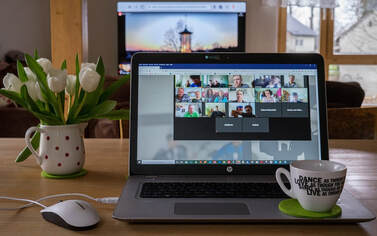 Anna: Thanks for outlining this process and giving us a better understanding of how your program gains access to clinicians! What do you do to connect with clinicians who have yet to set up an appointment? Ashley: One of our solutions has been what we call “virtual office hours”. In the calendar slots where a detailer has no detailing visits scheduled, they can hold open office hours, and we send out a promotional email about them to clinicians. Multiple clinicians can be there at once and chat about anything under the umbrella of the HIV care continuum. The detailer slowly shifts the clinicians who attend office hours into a detailing relationship by creating opportunities to meet again 1:1 to further discuss certain topics. Anna: That’s such an innovative approach in gaining access. Can you discuss some of your team's other recent successes as it relates to virtual detailing?  Ashley: Virtual detailing has allowed us to increase our number of detailing visits due to the decreased number of resources and time required to complete an e-Detailing visit, including scheduling. We spent a lot of time looking into different platforms for automated appointment scheduling and ended up finding the Appointlet scheduling app. It allows us to manage all of our detailers’ schedules in a centralized place. It’s extremely intuitive and easy to use. We’ve also switched our evaluation from a handwritten survey to a digital version on Survey Monkey. We made our survey significantly longer when we moved it to Survey Monkey and pulled a lot of our questions from example surveys from other programs and the national HIV curriculum website. Our questions are specific to knowledge, attitudes, and practice and allow us to distinguish if a clinician isn’t doing something because they don’t have the knowledge, they don’t feel comfortable, or they don’t see it as within the scope of their role. Despite the lengthier survey, our response rate has been much higher now that we can send follow-up emails with the survey link right in it. Survey Monkey has also allowed us to quickly review the pre-evaluation data prior to detailing visits. If there are any red flags, we can highlight it for the detailers so they can customize which key messages will likely resonate with the clinician during their visit. Anna: That's great. There are certainly advantages to using a virtual platform to conduct the different steps of the program process. What are some of your goals for the remainder of 2021?  Ashley: We want to start implementing a successful hybrid model of in-person detailing and e-Detailing while also training our new detailers in a robust and consistent way. We want to continue with our main goal of increasing the number of PrEP prescribers in Oregon and making it more accessible across the state. We also want to start detailing pharmacists, depending on how the current legislation lands around providing supports for pharmacists to prescribe PrEP. We feel confident in our key messages for primary care providers. We’re excited to start crafting our key messages in ways that appeal to pharmacists and address the different barriers to implementation for them as well. Anna: Those are excellent goals! What’s one tip that you would offer other academic detailing programs who’d like to replicate your success? Ashley: Utilize e-Detailing; it’s a wonderful tool! Many developers are coming out with apps to serve this new digital landscape that can assist in implementing e-Detailing successfully. It’s just a matter of finding the right tools by taking a little bit of extra time and patience to experiment. I would also say that it’s important to build a relationship with your state’s health department leadership and obtain an official endorsement letter from the state supporting your activities. Establishing a relationship not only positively impacts your program’s visibility and ability to gain access to clinicians, but it also helps to make sure you're aware of other outreach initiatives, which allows you to align efforts and not duplicate processes. Anna: Terrific advice, thanks, Ashley! You’ve given us such a unique perspective on e-Detailing. We look forward to continuing to hear about all of your team’s successes and groundbreaking ideas. Have thoughts on our DETAILS Blog posts? You can head on over to our Discussion Forum to continue the conversation! 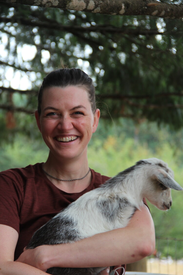 Biography. Ashley has been with the Oregon AETC since 2018 where she works to bridge the gap between local public health priorities and education and training opportunities available to providers. Before joining the Oregon AETC, Ashley spent over two years working for local and international HIV focused CBOs in Johannesburg, South Africa. A majority of her work in Johannesburg focused on grant writing and managing the implementation of community-based HIV medication adherence models in partnership with provincial and municipal public health. Prior to moving to Johannesburg, Ashley spent five years working at Planned Parenthood in Portland, OR occupying a variety of roles, including clinic assistant, phlebotomist, patient advocate, and call center representative. Ashley credits her passion for supporting patient access to quality HIV prevention and care to the experiences she had with patients while providing HIV testing and counselling services at Planned Parenthood. An interview with Liesa Jenkins, MA, the Executive Director of ONE Tennessee, an organization devoted to addressing the opioid overdose epidemic statewide. by Winnie Ho, Program Coordinator Tags: COVID 19, Detailing Visits, Opioid Safety, Program Management, Rural AD Programs, Substance Use  Winnie: Liesa, thank you so much for taking the time to speak with us today about your experiences at the helm of ONE Tennessee through the past year. Can you tell us a little bit more about yourself and the AD-related work that you do? Liesa: As the Executive Director of ONE Tennessee, I have overall responsibilities that include strategic planning, funding, communication, and staffing in addition to coordinating our AD program. I’m responsible for recruiting, training, and supporting our detailers to be as effective as possible. Our mission is to combat opioid misuse and overdose, and AD is just one of many projects and strategies we have to do that. W: You certainly wear many hats in your leadership role! Can you tell us about the experiences that have shaped how you approach leadership? 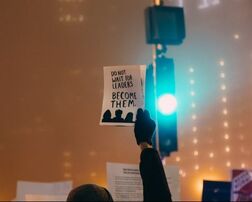 L: There were a very diverse set of experiences that influence how I’ve learned to lead. It’s also important to recognize that leadership comes in all forms. I was a foreign language teacher for 10 years, I had to learn the many different ways of communicating information to students from young teens to older adults. You learn to consider the way you present your information to help get all of your students to their goals. I was also a director of a non-profit and managed volunteers. Just like my students, you quickly learn that people have many different motivations. A good leader knows how to cater to those motivations and learns how to maximize the team they’re working with. It’s also important to always remember to express gratitude towards your team, and as often as possible, remind them of the impact that they’re making. W: You’ve discussed a lot of the soft skills and characteristics that good leaders have. What about some of the technical abilities that helped you be successful at managing an AD program?  L: Before coming to ONE Tennessee, I worked at both the federal and state-level in healthcare-related consulting work. It gave me exposure to federal and state-level funding procedures, as well as the decision-making process that goes on behind the scenes. You also learn about the regulations and guidelines that AD helps to keep clinicians aware of. W: It sounds like you’ve had a fantastic journey on your way to the position that you have now in leading an AD initiative. Can you tell us a little bit more about the different community organizations that support ONE Tennessee’s AD work? L: We have support from multiple organizations including the Tennessee Pharmacists Association, the Tennessee Hospital Association, and the Tennessee Primary Care Association. They’ve helped us recruit clinicians to serve as detailers and to participate in detailing sessions. We also have support from the East Tennessee State University’s College of Public Health and the Tennessee Department of Health supporting our data collection and program evaluation. We are thankful to other provider organizations including local community pharmacists and clinicians at Alliance Healthcare Services to assist us in development and distribution of materials  W: That’s quite a dynamic bunch! At the intersection of many different groups in the community all focused on preventing opioid-related overdose, how do you keep all these different stakeholders on the same page? L: Even when you speak the same common language, not everything is always communicated and understood as intended. I work with a talented team from diverse career backgrounds, including finance, legal, communications, and policy professionals. They don’t all speak the same exact “language” because of their professional backgrounds. The role I often play in group meetings is that of a facilitator. I'm comfortable asking the so-called “dumb questions” or constantly asking for explanations. As a leader, it’s my job to make sure there is clear understanding among the folks in the room who don’t work in that field. It’s important as a leader to not only communicate well, but to also make sure everyone on your team is communicating well enough so that everyone can understand and also be understood.  W: Intentional level setting is a hallmark of effective leadership and communication. It allows meetings and decisions to be productive, and it ensures that everyone’s goals are aligned. Otherwise, important details may get left behind or not fully developed. L: Exactly. It’s also important to know that with your team, you’re never alone. You don’t need to know everything to be a leader, but you need to surround yourself with people who can collectively make decisions based on good information. Surround yourself with people who know more than you do, and listen to them. W: You picked up this role in the middle of a pandemic and with your leadership, we were able to launch our first virtual training pilot with ONE Tennessee for about two dozen detailers. It was a huge undertaking! What would your advice be for someone who’s looking to tackle big projects in their role as the leader of an AD organization?  L: I would say first and foremost – the determination to fulfill our commitments was important to me. I knew what was in our contractual agreement with our funders, and didn’t want to start off our organization with a fail in this category! Secondly, create a timeline with the concrete things that need to be finished and the resources you need to help you monitor progress along the way. Finally, in the face of making new things happen – it can be daunting when there’s a big mission to accomplish. When there’s nothing on the drawing board yet, a leader is someone who volunteers to put up the first “strawman” plan. It doesn’t need to be perfect, but it gives everyone something to build off of; it’s always better to start with something, like the first brick in the foundation. W: We’ve talked a lot about how to bring a community together to support an AD intervention. Why is community involvement important to the success of an AD intervention?  L: Well, whether you’re talking about opioids or HIV or chronic illnesses, the reality is that no one individual or organization within a community can solve a public health problem alone. Even though AD is mostly about the relationship between the detailer and the clinicians they work with, it’s informed by many other people who care about improving health outcomes. In short, the program would not be able to operate without the leadership and support of these partners! In a state as large as Tennessee, with such wide differences among rural and urban, from the Appalachian region to the Mississippi Delta, racially diverse but largely homogeneous in some places, it is important that collaboration occur at local levels as well as at state levels—both among clinical colleagues in the same community who care for the same patients, and also with support from state-level organizations who can leverage resources that may not be available in the local community. While individuals and organizations may not agree on all points, it is usually possible to find at least one shared goal that can be worked on together. As an organization, we strive to identify and then mobilize to address those common goals. There are great things ahead for us all if we continue to work together. Have thoughts on our DETAILS Blog posts? You can head on over to our Discussion Forum to continue the conversation! 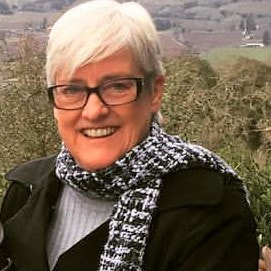 In her current role as Executive Director of ONE Tennessee, Liesa draws upon her experience as an educator, a non-profit administrator, a state-level director of community health programs and a consultant to state and federal officials, as she works to advance the organization's mission to combat the opioid epidemic through collaboration and sharing of information among health professionals and communities in Tennessee. In her professional roles at Kingsport Tomorrow, CareSpark, Deloitte Consulting and the Tennessee Department of Health, Liesa has helped to develop and implement a broad range of collaborative projects at local, regional, state and national levels to improve community health, broadband access, education and literacy, employment opportunities, cultural arts exchanges, global trade, environmental protection, neighborhood revitalization, youth development and civic leadership. Her skills in strategic planning, resource development, mentoring and community organizing have been recognized with awards, including being named a Paul Harris Fellow by Rotary International, a Health Care Hero by the Business Journal of Tri-Cities, and the Commissioner's Award of Excellence from the Tennessee Department of Health. Liesa received her B.A. in French from King University in Bristol, Tennessee and her M.A. from the University of Kentucky in Lexington, Kentucky. She also holds a Certificate of University Studies from the Université de Franche-Comté in Besançon, France, and is certified as a Project Management Professional by the Project Management Institute. Liesa is a native of Glade Spring, Virginia, where she is a seventh-generation resident on her family's farm, and enjoys spending time with her three sons and their families, as well as quilting, reading, and traveling. An interview with Jacqueline Myers, BSP, Academic Detailer, RxFiles and Pharmacist, Infectious Diseases Clinic, Saskatchewan Health Authority – Regina Area. RxFiles is an academic detailing program that provides objective, comparative drug information to clinicians. Jackie’s work at RxFiles includes academic detailing and resource development. by Anna Morgan, MPH, RN, PMP, NaRCAD Program Manager Tags: COVID 19, Conference, Detailing Visits, Substance Use  Anna: Hi Jackie! We’re excited to feature your work as a detailer. How did you first become involved in academic detailing? Jackie: RxFiles has a bit of a celebrity following in Saskatchewan. The RxFiles books, which are packed with resources and drug comparison charts covering various clinical topics, are a coveted possession. You receive one book for free as a pharmacy student and everyone looks forward to that day because it has all the study material you could ever need in one place! I think it’s a dream of pharmacy students to get involved with RxFiles at some point in their career. I started with RxFiles in 2019 while working within the Saskatchewan Health Authority (SHA) Opioid Stewardship Program (OSP). A partnership was formed between the OSP and RxFiles and I was able to work both as a clinician at the Regina Chronic Pain Clinic and as a detailer providing education and creating content for RxFiles. My role in SHA has since changed, but I’ve continued detailing for the RxFiles team.  Anna: Your passion for academic detailing is palpable. You could tell how much you love academic detailing during your presentation at NaRCAD2020. Can you tell us a little bit more about why this work is so important to you? Jackie: It excites me to hear that--I’m so glad people see that I’m passionate about this. I’ve always admired musicians and artists for their passion, but I’ve never pictured myself as one of those people. Many healthcare professionals - nurses, pharmacists, physicians, physiotherapists – we all go into this field because we like or love working with people. I’m no different than any other healthcare professional. I also really love to learn and then share that knowledge through teaching or mentoring. Academic detailing is such a cool combination of those things. You get to learn about a specific clinical topic, share your knowledge with another clinician and ultimately improve patient outcomes. It’s a really special process. Anna: You’re absolutely right – it is special! What kind of support has been most helpful for you in becoming such a successful and passionate detailer? Jackie: When I first started with RxFiles, the rest of the team was working on topics other than opioid prescribing which left me feeling a bit isolated. Luckily, RxFiles has a great support system. My colleague Debbie, who I now consider my mentor, has been a huge resource for me. Even though we weren’t detailing on the same topic, I knew I could always talk through key messages with her, as well as recruitment strategies and other tips for approaching prescribers in our area. I still know that I can always go to her for a debrief at the end of a visit, whether it’s a successful visit or a mess of a visit. Academic detailing has the potential to be really isolating, so having someone who understands and can help guide you through some of your challenges can be so beneficial.  Anna: We know that academic detailing can be isolating, so it’s wonderful to hear how supportive your team is. On the days when you’ve had hard visits, I’m sure it’s difficult to feel that you’ve made an impact. How do you know that you’ve been successful in a detailing visit? Jackie: At the 2019 NaRCAD Conference, I was amazed by the presentations and the data that different programs had collected to measure impact. When I first started detailing, I was very focused on the clinician I was detailing committing to make a change or doing something differently in their practice. Then I began to learn that success in academic detailing comes in two forms. One is making an impact that changes a clinician’s practice and the second is establishing a connection and developing a relationship with a clinician. Sometimes making a connection will come first and then lead to making an impact, or sometimes they’ll occur simultaneously. Those are the two ways that I define success for myself in academic detailing. Anna: That’s spot on – those are two of the main goals of academic detailing. Can you share any success stories from the field from a time when you felt you made an impact? 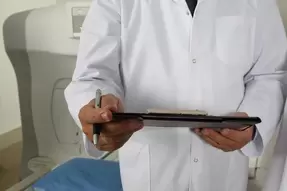 Jackie: Of course! We are currently working on a special project to increase the number of buprenorphine/naloxone, or Suboxone, authorized prescribers in our province. One of the physicians I detailed was not yet authorized to prescribe buprenorphine/naloxone. He was a hospital physician and worked in internal medicine. He shared with me that he’d been thinking about becoming authorized and was apprehensive, but he saw a need for it in his patient population. A lot of his patients were being admitted for various diagnoses but would also have a concurrent substance use disorder that went unmanaged or ignored. After our detailing session, he reached out to me. He described a patient that he had admitted for an infectious process who also had opioid use disorder. He said, “before our conversation, I would have normally treated the infection and probably ignored the opioid use disorder. It’s possible the patient may have left against medical advice, and I would have thought, ‘that was their choice, and I did my best.’ ” After our detailing visit, he felt that he had the courage and the skills to discuss the patient’s opioid use disorder with them and think about what he could do as a physician to keep the patient comfortable and safe while they were in hospital. This honest conversation led the physician to speak with an authorized prescriber who was able to initiate the patient on buprenorphine/naloxone while they were admitted in the hospital. Even though the ask for this detailing project was to increase authorized prescribers, which he has not yet become, the interaction I had with this physician still led to a positive patient outcome and a better patient experience. Anna: Thank you for sharing that - it’s so nice to hear stories from the field. Even if you don’t accomplish the messaging you were sent out to do, you’re still making an impact. Can you share a story where maybe you weren’t as successful and how were you able to bounce back from a situation that was challenging for you?  Jackie: During COVID, a physician reached out to request a virtual visit. We started our detailing session and I was beginning my needs assessment. I started asking about his practice and his familiarity with buprenorphine/naloxone. He said, “that’s a new weight loss drug, right?” From that point on, he was really sad that I wasn’t there to talk about a weight-loss drug. He was disinterested and I could tell he was distracted. I could hear him moving around papers through the phone and I could hear people talking in the background. I said, “if this is not a great time for you, we can definitely rebook” but he insisted that I continue. I could feel myself getting frustrated, but I finished the visit. I was able to deliver my key messages, but I left the visit not feeling great. There was no commitment to action or change and we didn’t build a connection. I felt like I wasted both of our time. In order to bounce back from something like that, I think you need to acknowledge that it will happen sometimes and debrief with colleagues who have been in your shoes. Then just pick yourself up and try again. Anna: That’s great advice. It can be discouraging to have a visit like that, especially if your new in the field! One last question to wrap up - do you have any personal academic detailing goals for this upcoming year? Jackie: Yes! I was previously detailing on only opioid-related topics. This year, my role has changed a bit and I will be detailing on various clinical topics and in a new geographical area with all new clinicians. My primary goal is to connect and build relationships with these new clinicians. Fortunately, I’m taking over for a cherished detailer who is retiring and will help provide a warm handoff. My secondary goal, which is a bit sillier, is to avoid troubles on the highway when we begin in-person visits again. The detailer I’m taking over for has had some very interesting car trouble heading out to his detailing visits. He’s met a lot of wildlife and his car was even once fried by lightning! Anna: We certainly hope you’re able to avoid those highway issues! Thanks so much for chatting with us today, Jackie. Your stories are inspiring, and we can’t wait to connect again and hear about all your 2021 accomplishments. Have thoughts on our DETAILS Blog posts? You can head on over to our Discussion Forum to continue the conversation!  Biography. Jackie graduated from the University of Saskatchewan with her Bachelor of Science in Pharmacy in 2012. She has practiced in numerous clinical settings including community pharmacy, long term care, and hospital in the areas of internal medicine and opioid stewardship. Jackie is currently involved in the management of people living with HIV and substance use disorders at the Infectious Diseases Clinic in Regina. She also works with RxFiles providing academic detailing services and resource development. Overview: Dr. Nate Rickles, PharmD, PhB, BCPP, FAPhA is an associate professor pharmacy practice at the UConn School of Pharmacy with experience in developing AD programs, most recently for the CDC-funded CEDPP (Connecticut Early Detection and Prevention Program) project. Dr. Natalie Miccile, PharmD, MBA currently works as a retail pharmacy manager at ShopRite Pharmacy. She’s working with Nate to onboard pharmacies participating in the CEDPP program and working with the pharmacy students who are supporting the process of referring patients to screening, diagnostic, and prevention services. by: Winnie Ho, Program Coordinator Tags: Cancer, COVID-19, Detailing Visits, Health Disparities, Program Management  Winnie: We’ve been excited for a chance to speak with you both! Nate, you spoke on our Clinical Innovations in AD session at the NaRCAD2020 Conference, sharing your work to support underserved, and sometimes undocumented, women in accessing care. Thank you both for joining us today – can you tell us a little bit more about the program and the issues it addresses? Nate: CEDPP consists of two components: the Connecticut Breast and Cervical Cancer Early Detection Program (CBCCEDP) and the Well-integrated Screening and Evaluation for Women Across the Nation (WISEWOMAN). The services are offered free of charge with the goal of significantly increasing breast and cervical cancer services for medically underserved women. The Department of Public Health’s traditional outreach method of using clinical navigators at established WISEWOMAN sites could only reach a relatively small population. We received a CDC Innovation Grant to investigate the role that community pharmacies could play in increasing referrals to a free public health prevention program for vulnerable populations, as these pharmacies are accessible, front-line, and generally well-trusted in the community. 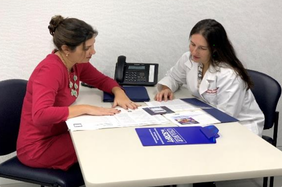 W: That’s an important goal to close this gap and to ensure more women can access the services they need. Why did your team feel that AD was a useful approach to address the lack of access to screening services? Nate: I’m very passionate about the notion that building relationships through 1:1 connections are going to be more powerful long-term in creating behavioral change. AD works so well because the techniques are very persuasive in dealing with common barriers like pharmacists believing there’s little time in their day, not enough staffing, or not the right financial incentive. Our project manager Peaches Udoma had sent out flyers and e-mails to local pantries and shelters, but we hadn’t received many referrals through this tactic. The predominant way we’re getting referrals is through 1:1 outreach with pharmacists and our students reaching out to the referred participants to connect them with services.  Winnie: Can you tell us more about how your intervention navigated the pharmacists’ barriers you described? Natalie: We had a lot of interest from pharmacists, especially when they learned about the impact they could have. However, for a full month, we weren’t seeing results. When I checked in, we learned that they were genuinely overburdened with their workflow, which wasn’t surprising. We had to think about who else in the office could do it – and it turned out to be the pharmacy technicians. They were often at the point of sale and would be more likely to know if patients were uninsured or underinsured. We began detailing the pharmacy technicians directly instead. Many of them were bilingual, which helped in distributing the right flyers to the right women. We worked with the pharmacy technicians on communicating the benefits our programs offered, with attention to utilizing accessible language and avoiding unnecessarily complicated healthcare terms. We learned that emphasizing key things like free gym memberships or free nutritional services provided was very useful in getting women to agree to be referred. Addressing the language barrier and slight language changes was key to us finally getting referrals. However, when COVID-19 hit, we had to reassess since we started getting zero referrals again. It made sense as few people want to wait around in a public space, and pharmacies also became overwhelmed. Our team pivoted to reaching out directly over the phone after receiving lists of potential contacts from the pharmacies. We wanted to show our partners that we could be resilient in this time and to not let this program fall through.  Winnie: Pivoting your intervention to have team members directly contact the women you were trying to refer instead of through the pharmacy technicians must have required your team to make adjustments to accommodate language needs. How did your team tailor the AD intervention to address language barriers? Nate: We noticed that we had many of the women we reached out to who spoke Spanish as a native language, and quickly realized we were probably losing a lot of patients because of the language barrier. We onboarded a pharmacy student, Isabella Hernandez, who, in addition to being a very dynamic, charismatic, and outgoing person, also spoke Spanish. Once Natalie onboarded her and shared the main concepts around the screening and referral, Isabella was quickly able to pull in over 80 referrals; we didn’t have even half or a third of that through our prior efforts. We’ve been closely tailoring our work since, with flyers in Spanish, Portuguese, and in Arabic. We have also Arabic speakers to communicate with Arabic-speaking patients, and we have the capacity to expand into other languages. 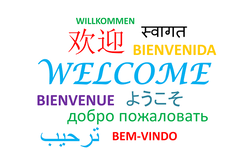 Natalie: I originally worked with the lists of contacts we received and tried to engage directly. However, because we recognized our bilingual pharmacy students were able to better engage with these women, my role now is to oversee our callers, get their referrals, and help touch base with site navigators to ensure referrals are being processed, and how we can improve our screening process. We’re prioritizing language accessibility because our first encounters are first impressions. Our patients matter, and we want to make things as smooth as possible for them. We’re even at a point where Isabella is running trainings with our other callers, so she can give them hints on how to be more flexible in the conversation to fit our clients’ needs. Winnie: This is a really outstanding demonstration of flexibility and tailoring a program to address barriers to practice change. We hope that other programs continue to follow your example of integrating best practices to communicate with patients from diverse communities! Have thoughts on our DETAILS Blog posts? You can head on over to our Discussion Forum to continue the conversation! 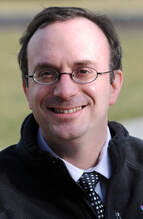 Nathaniel ("Nate") Rickles is an Associate Professor in the Department of Pharmacy Practice at the University of Connecticut School of Pharmacy. He received his B.S. in psychology and chemistry from Dickinson College, Pharm.D. from the University of the Sciences in Philadelphia, M.S. and Ph.D. in the Social and Administrative Sciences from the University of Wisconsin-Madison. Dr. Rickles also completed a psychiatric pharmacy practice residency and is board certified in this area. He was inducted as a Fellow of the American Pharmacists Association. His primary research interests are to develop, implement, and evaluate intervention programs that improve pharmacist communication with patients and/or other team members and subsequently to improve medication adherence and patient safety. Primary teaching interests involve courses on communication skills, mental health, health behavior change, cross-cultural health care, and research methods. Dr. Rickles is an active researcher with several grants and publications involving enhancing the role of pharmacists in changing patient and provider behaviors. 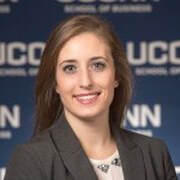 Natalie Miccile received her PharmD from the University of Connecticut School of Pharmacy in Storrs, CT and MBA from the University of Connecticut School of Business in Hartford, CT. Her MBA concentrations include Digital Marketing and Strategy and Investment Analysis. She works as a consultant for UConn School of Pharmacy on research initiatives that involve enhancing the role of pharmacists in the community setting and is pharmacy manager at Shop Rite Pharmacy in Milford, CT. Dr. Miccile is MTM certified and an active member of the Connecticut Pharmacists Association. Anna Morgan, MPH, RN, PMP, NaRCAD Program Manager Tags: Conference, COVID-19, Deprescribing, Diabetes, E-Detailing, Elderly Care, Health Disparities, HIV/AIDS, International, Jerry Avorn, Mental Health 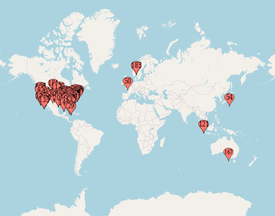 Map of where NaRCAD2020 attendees tuned in from Map of where NaRCAD2020 attendees tuned in from Over 240 members of our worldwide community came together to be a part of something special--our 8th annual conference, and our first in a virtual setting. We were able to expand our reach and overcome barriers like travel time and financial constraints that have prevented our colleagues from attending previous conferences. There was a palpable sense of positivity, enthusiasm, and resilience, especially in a virtual space. We’re so proud of evaluations that cited a renewed sense of passion and commitment to AD based on the new lenses we applied to our programming, including comments about feeling “empowered” to continue this work in the year ahead (even amidst inevitable Zoom fatigue.) Check out our highlights and access all event resources below and on the Conference Hub.
 With so many of you expressing a continued need around more of our peer working sessions, we’ll be focusing largely on that in 2021—we can’t wait to support your work this year. In the meantime, tell us what you need to make next year a success. See you in 2021. The NaRCAD Team Have thoughts on our DETAILS Blog posts? You can head on over to our Discussion Forum to continue the conversation!  It's a time when continuous comparisons of the COVID-19 era to that of the Spanish Flu of 1918 are frequent. More than 100 years later, we've moved from telegrams to Instagram--staying connected seems like it'd be easier than ever. With so many channels and platforms available to stay on top of the ever-changing influx of info on the current state of healthcare, why do we so often feel less connected? We're speaking, but we're having a hard time listening. We're viewing, but we're not reading. With platforms like Twitter, output is the main focus. Sure, we scroll through others' feeds, leave comments and likes, all with a quick tap or two. But this is the virtual version of 'speaking at' someone, rather than with. What will encourage us to invest in opportunities for more circular, reflective dialogues during an era where the perceived preciousness of time leaves us running at an ever amped-up, task-oriented pace? What slows us down in these moments of overstimulation?  For many, it's 'feeling seen' for the work that they do, the values they share, the experiences they've had. It's pausing to sharing stories as often as sharing data; contextualizing our experiences with vivid imagery, details, reflections. It's trading in the hashtag for a moment to pause and be present with others. Consider it akin to drinking a cup of tea or coffee--rushing makes it an unpleasant task rather than something to be enjoyed as it should be. With a personalized approach like this in mind, and with a sense that it's more critical than ever to slow the pace at which we give and share information, investing a few more moments in the art of storytelling allows us to deeply digest each other's experiences. Our Discussion Forum provides space to do just that--share and digest; a space where there isn't a speed at which info is refreshing your app, there are no 'push notifications', there are no alerts. Instead, our goal is to offer you time to sit and pause, to be present and learn with other health professionals who, like you, invest their valuable time in supporting frontline clinician care.  We invite you to take a moment to invest in this library of stories, where a few minutes of time will not be lost to the ethers of endless Facebook or TikTok scrolling (which serve their purposes, too). Instead, your return on investment will be as valuable as the time you spend--a connection to a community full of dedicated health educators who share their struggles, setbacks, and solutions. Make as many small (or large) moments in your day to pause--it's more important than ever for healthcare professionals and beyond to take the best care they can. And if you're willing, share one of those moments together with us. Trust, Mutual Respect, and Transparency: Building a Strong Provider-Detailer Relationship (Part I)10/20/2020
Overview: The DETAILS blog presents a special two-part series of what it takes to build a strong provider-detailer relationship from the perspective of a long-time academic detailer and from one of her local physician partners that she's detailed for almost 15 years. In Part One, we speak with Amanda Kennedy, PharmD, BCPS, who serves as the Director of the Vermont Academic Detailing Program and has been an active detailer since 2002. The Vermont Academic Detailing Program sees about 450-500 providers a year on 1-2 clinical topics. In Part Two, we hear from Dr. Robert “Bob” Schwartz, a Vermont family physician who reflects on his experiences with academic detailing visits with Amanda. Stay tuned for Part Two! An interview with Winnie Ho, NaRCAD Program Coordinator. Tags: COVID-19, Detailing Visits, E-Detailing  Winnie: Amanda, thank you for taking the time to reflect on the relationships you’ve built through the years with local providers. What would you say are the key elements for building a strong provider-detailer relationship, and why? Amanda: Trust and mutual respect. If the clinician doesn’t trust you, then it’s going to be very hard to make recommendations for practice change. Mutual respect goes both ways. As much as I am providing a service, I also expect the clinician to show up and be engaged in our visit, because only then can we have the kind of conversation that gets at the heart of the behavior change we hope to see. W: Engagement is such a key component of these visits, especially for creating a safe space for providers to be open and honest with the detailers about their concerns and needs. I want to take you back to the start and ask you to reflect on what it was like to be brand new to AD. What advice would you give to a new detailer in those shoes?  A: Confidence is key. You can study and practice everything with your team, but at some point you have to get out there and just do it. Building that relationship requires confidence and the belief that you have something valuable to offer. When you only have a few opportunities a year to meet with clinicians, you have to capitalize on those moments. It can be difficult to establish that rapport and trust when contact is infrequent. It’s about persistence, patience, and continuing to show the clinician that you want to be helpful. Some things can get in the way, such as not having the same clinical background as the provider you’re working with, and not always feeling qualified. But remember, you wouldn’t have been hired in this role you weren’t qualified! W: That’s certainly important to keep in mind. You were also recently introduced to a new playing field – virtual visits. Compared to traditional in-person visits, what’s it like starting new relationships through e-Detailing?  A: Virtual visits can be efficient, because we eliminate the cost of travel, we can reach more people and more often. Most of the content of that first call is the same as in person. On a first visit, most of what you’re doing is the introduction of your work and your program. I’m transparent about everything with them. I don’t bring up my materials or share my screen until that clinician has had the opportunity to ask me any questions they have. I give them a chance to see me as a person first, without distractions. This takes a few minutes longer virtually than in person, and it can be harder to gauge body language, but it’s an important first step in establishing a relationship. W: That’s a good piece of advice for many programs making that transition into e-Detailing, as I know it was a big concern about starting these relationships over a new medium. Do you have an example of how maintaining these relationships can support better health outcomes for patients?  A: Yes. While our team was putting together information on a COPD campaign, I was meeting with Dr. Schwartz on a different topic. At the end of our visit, I told him about the next topic and asked him what was concerning him about it. He asked for more information on benzodiazepines and patients with COPD. While this specific information wasn’t included in the overall COPD campaign, I’ve personally been looking for good articles that would be helpful for his particular interest. In attending to this specific request, I’m showing him that I’m listening to and addressing his need. W: That’s some strong needs assessment! And I’m sure that information will be put to good use. You’ve been in this field for 18 years - have you seen how your support has resulted in clinical behavior changes over the years? A: The most rewarding thing for me is going into a clinic and seeing a tattered version of a handout we used five years go, or a clipped out table taped up on a board. That’s how you know your information has stuck around and has had a long-term impact.  Also, on visits, if a provider is struggling to think of how to incorporate a behavior change into their practice, I have stories from other providers and can provide suggestions and ideas that have worked for them. I can leverage a community of long-term relationships. W: Have you found that these strong relationships allow you to get more out of a detailing visit, especially when there are some difficult conversations? A: Yes, absolutely. It’s important to know, especially right now, that we’re suffering a community-wide trauma because of COVID-19. Out patients need their providers, but those providers have their own challenges going on too. There are family issues, financial issues, and community issues. Our jobs as detailers is to be a support as much as we can, and to help providers make beneficial changes for patients that are rooted in evidence.  We’re currently doing a topic on managing stress related to COVID, but before we get into how providers can help their patients, we pause and ask them how they’re doing. I’ve had providers share deeply personal information with me that can be important in understanding how to best support them in addition to them supporting their patients. They know that they can trust us. W: As we wrap up, what would your final advice be to other detailers looking to replicate your success? A: My advice? It doesn’t take 18 years to build a relationship with someone. It just takes enough of your effort to show that you’re really trying and taking opportunities to be of service. It means showing that you’re trustworthy, and that you’re going to respect and support them just like you’re promising them that you will. (Part One of Two). Have thoughts on our DETAILS Blog posts? You can head on over to our Discussion Forum to continue the conversation! 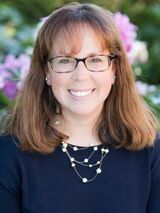 Amanda Kennedy, PharmD, BCPS, is the Director of the Vermont Academic Detailing Program at the University of Vermont’s Office of Primary Care. She has also been an active academic detailer for nearly 20 years. Amanda regularly serves as a faculty facilitator for NaRCAD’s Academic Detailing Techniques trainings. In addition to her role with academic detailing, Dr. Kennedy is a Professor of Medicine at the University of Vermont’s Larner College of Medicine. She currently serves in the Department of Medicine Quality Program, teaching and mentoring physician residents, fellows and faculty in quality improvement and health services research. 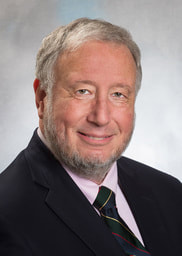 Jerry Avorn, MD, Co-Director, NaRCAD Tags: COVID-19, Detailing Visits, E-Detailing, Jerry Avorn The pandemic has changed everything about our lives and our work. Some occupations have been able to adapt to the new abnormal, such as programmers and financial traders. Others have found it harder to do their jobs as before, like brain surgeons and academic detailers. For the latter, in a socially-distant, avoid-human-contact world, how can we pursue an activity that has as its very definition in-person, interactive communication? Academic detailing programs around the country and the world have been grappling with this challenge. And unlike our colleagues the brain surgeons, we have been able to come up with some plausible solutions, even if nothing is quite the same as being up close and personal. We’ve been learning about the virtues and limits of Zoom/Skype/WebEx. If we’re paying attention, using them can bring into sharp focus the central aspect of interactivity, on steroids. It’s a little like becoming a better runner by strapping weights on your ankles (or so my athletic friends tell me). A non-adept academic detailer can mis-use a Zoom encounter even worse than a face-to-face one: “Sit still for 20 minutes while I do this presentation at you.” That will fail on a platform even more calamitously than it does in person. (One clue is when the prescriber mutes their video to read their e-mail.) But if we’re open to it, the e-encounter can focus our attention even more on whether we’re learning where the clinician is coming from, getting feedback, actively asking what sub-topics they most want us to cover. The artificiality and forced intimacy of a screen-to-screen encounter, and the reason we currently have to do our work like this, can also focus us even more on another key aspect of academic detailing, empathy. “How are you holding up?” or “I bet COVID has really changed your practice” are opening statements that can address the 800-pound virus in the (virtual) room, acknowledging the obvious strangeness and discomfort that afflict so many conversations in these awful times. On a more concrete level, pandemic-style education is also forcing us to come up with new ways to use our educational materials. What to do when you can’t focus a practitioner’s attention on a particular graph or table you’re showing them because they’re dozens of miles away? Displaying a PDF of a document and whizzing around your cursor is one easy, but primitive solution. What about presenting a list of topics hot-linked to a detailed display for each? Or completely re-formatting our materials (stop moaning) for better adaptability to a computer screen? 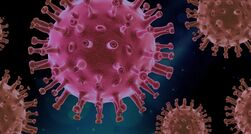 Those of us who also used to teach in classrooms have learned that with a little work (ok, a lot of work) coronaeducation can even be better than what we’ve been used to doing: using links to video clips or animations, real-time interactive polling, techniques that maybe we could have been using in the classroom, but weren’t. Another key advantage of academic e-Detailing, if we can figure out how to make it work well, is the prospect of having a virtual visit with a clinician without the sunk time of getting to their office – a major enhancement in working with practitioners who may be an hour’s drive or more from the educator’s base. The benefit for our field in productivity and cost-effectiveness could be considerable. Contrary to naïve beliefs that “Soon everyone will be protected by the vaccine and we can get back to normal,” this virus probably won’t let us return fully to the old ways any time soon. Instead, it will force us to mutate our work to cope with it. And in the process, not only will we be able to continue our work, we may even discover better ways of doing it. Be strong and stay safe. Have thoughts on our DETAILS Blog posts? You can head on over to our Discussion Forum to continue the conversation! Biography.
Jerry Avorn, MD, Co-Director, NaRCAD Dr. Avorn is Professor of Medicine at Harvard Medical School and Chief Emeritus of the Division of Pharmacoepidemiology and Pharmacoeconomics (DoPE) at Brigham & Women's Hospital. A general internist, geriatrician, and drug epidemiologist, he pioneered the concept of academic detailing and is recognized internationally as a leading expert on this topic and on optimal medication use, particularly in the elderly. Read More. An interview with Tara Hensle, a research coordinator with the University of Illinois - Chicago, School of Pharmacy (UIC) and Illinois ADVANCE (Academic Detailing Visits And New Evidence CEnter). by Winnie Ho, Program Coordinator Tags: COVID-19, E-Detailing, Opioid Safety, Program Management, Substance Use 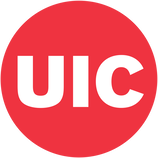 Winnie: Hi Tara! It’s been a crazy year so far, hasn’t it? We want to check in with you and the University of Illinois, Chicago (UIC) team about your experiences in navigating the pandemic. Can you tell us a little more about yourself and your role in the ADVANCE academic detailing team? Tara: I was hired about 7 months ago as the research coordinator, and it’s been one heck of a 7-month run. The majority of my work is focused on implementation, so I do all the scheduling and outreach to hospitals to talk to providers. I develop and establish relationships with office managers and providers, and I assign detailers to visits.  W: Our team at NaRCAD has been lucky to have worked with the UIC and ADVANCE team for a while through our trainings and your presentations at our conferences and our webinar series, and we’re excited about the research intervention that had been planned. Can you tell us a little bit more about the mission? T: Our intervention is a CDC-sponsored, three pronged approach that’s built off a pilot program that we started in 2018 for Chicago-land providers. We have a team of about 30 detailers who are now trying to cover as much of the state as possible. We wanted to follow-up with providers to get a sense of whether or not the ‘dosage’ of AD made a difference, but we also wanted to expand the providers we worked with, and to introduce updated topics like the new features of the Illinois PMP or opioid alternatives. The third prong is creating a toolkit to give programs a blueprint and resources of what was effective for us. We would love to make the “how to” of AD more accessible to other groups.  W: Compared to other programs, you have quite a large and robust team at UIC. It must have been difficult for the pandemic to hit right in the middle getting your program launched. T: It really impacted our recruitment as we had called providers from the end of January through early March 2020. There are a lot of things going on right now. Even a small ask, such as 15 minutes of their day, can feel like a big ask for providers. W: Right, and interventions are very carefully laid out and planned ahead of time. COVID-19 has disrupted everything – especially those on the frontlines who are both detailing and being detailed. Can you tell us a little bit more about how else the impact on your original plans for the intervention?  T: We had been so focused on ramping up that by the time we hit mid-March, we had many people on deck reaching out to providers. We started hearing “No, we can’t do this right now” or “this is a really bad time” often. Once the stay-at-home order came through, we stopped contacting offices for about 2 months. We had to sort out so many protocols and even our IRB to make amends for virtual visits. What we’ve found since we’ve resumed virtual visits in May is that there’s a lot of variability – some offices have capacity because they aren’t seeing many patients, while others have providers that have been transferred to hospitals and have no idea when they’ll be available. We’re also talking about layoffs and burn-out and low morale.  W: There are many of considerations on how best to proceed safely right now. One is looking at the impact on the critical work you’ve done on opioid safety. Unfortunately, the pandemic has only exacerbated the overdose epidemic. What progress has been made on your opioid initiative? T: One of the ways our team has shifted has been moving to virtual visits. We knew that these would have its own difficulties, such as concerns about “no-shows”. But our team is relatively tech-savvy, and now my job is making sure they’re all familiar with how to troubleshoot the technological pieces of virtual visits. There are a lot of tech issues that can interrupt a visit. So we do mock detailing and have the detailers practice with each other, where we introduce certain needs and obstacles, maybe even a tech problem for instance, we role play a provider not turning on the webcam, or not being able to see your screen. Practice to strengthen adaptability and resilience become important in ensuring the detailers are prepared. W: There’s definitely no time like right now to test detailing skill and ability to think on your feet! As a research coordinator, what do you think you’ve learned in the past few months? T: How to be flexible! There are all sorts of external pressures right now to keep our project on track, but the most important part is keeping the human aspect in check. Having some insight and empathy for providers is important to understand what they’re going through. We can get bogged down into the guide posts, the bench posts, or the numbers – but this era reminds us that it’s all about empathy. W: At the end of the day, we want better for our patients, for our communities, and for health outcomes everywhere, right? T: Absolutely! Have thoughts on our DETAILS Blog posts? You can head on over to our Discussion Forum to continue the conversation! 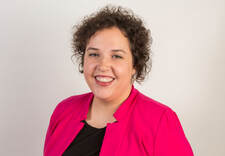 Tara Hensle is a research project coordinator at the University of Illinois – Chicago for a CDC-funded research study investigating the effectiveness of academic detailing for opioid prescribing. She received her Bachelor of Science in Behavioral Science and Speech Pathology at Purdue University, and has worked in a variety of healthcare research settings before coming to UIC. Since working on this project, she is inspired by academic detailing’s simplicity, versatility, and the variety of topics to which it could be applied. An interview with Kelsey Bolton, Continuing Professional Development Consultant, Gundersen Health System by Anna Morgan, RN, BSN, MPH, NaRCAD Program Manager Tags: Detailing Visits, COVID-19, CME, E-Detailing, Smoking Cessation, Substance Use  Anna: Hi, Kelsey! Thanks for taking the time to chat with us today. Can you tell us a bit about your academic detailing program in Wisconsin and your role? Kelsey: I’m a Continuing Professional Development Consultant in the Continuing Medical Education (CME) Department at Gundersen Health System. Gundersen Health System is a teaching hospital with a multitude of specialties that serves patients in Wisconsin, Minnesota, and Iowa. As part of my CME work, academic detailing stood out as an effective tool to disseminate our information and meet our clinicians’ educational needs. We started our detailing program last fall and have been focused on tobacco cessation. The detailing intervention is a spinoff of a performance improvement project we are working on for diabetes. I’m currently a one-woman show; I’m the program coordinator and the sole detailer. I detail physicians, NPs and PAs across the health system. Anna: Wow, it’s incredible that you’ve been able to build your detailing program from the ground up! Can you tell us what that’s been like? Kelsey: Academic detailing was a new concept to me prior to being introduced to it by my former manager, who sent me to the NaRCAD training in May 2019. Academic detailing is not a well-known concept in our hospital system. It was difficult to get past the gatekeepers and “enlighten” them about academic detailing. There are still misconceptions when I walk into a room for a meeting with a clinician – they often think that I’m a drug sales rep, that I’m an internal quality control person, or that I’m there for punitive reasons. I must quickly refute that and explain that I’m there to support and unburden them, not to make judgments about their work. Anna: Those misconceptions are quite common when starting a new academic detailing program. How are you able to “enlighten” the gatekeepers? Kelsey: It was bumpy at first and we tried a few different approaches, but I think we’ve finally been able to smooth it out. I have an advantage because I’m internal and I’m contacting clinicians from an internal email or phone number. I’ve also had our medical program coordinator, the doctor who is partnering with me to learn the clinical information, send out emails to gatekeepers prior to my detailing visits. Anna: Stakeholder buy-in is imperative when building a new detailing program. 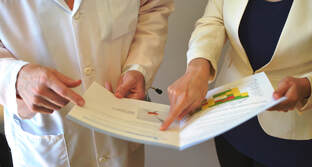 Kelsey: Absolutely. Building relationships with key stakeholders has made all the difference. The medical program coordinator I work with, as well as other experts in the organization, helped me curate my detailing aid and key messages. I practiced my detailing sessions with these stakeholders before going out in the field. It was an easy way to build relationships and get them on board – it only took a 15-minute practice detailing session! I’m also fortunate enough to have support from senior leadership. They’ve been able to open doors by letting people throughout the organization know that they support the academic detailing work I’m doing. Anna: It sounds like both managing your academic detailing program and being in the field has helped you be successful in getting your program off the ground. What has it been like to grow and manage your AD program? Kelsey: It’s like herding cats! The detailing program is 25% of my workload, so completing all the administrative work plus the detailing visits is quite a commitment. By the end of this year, I will have detailed over 200 clinicians. “Marathon detailing” has put me in a groove. It has definitely been challenging, but I appreciate that I know the ins and outs of it now – both the administrative tasks and the field work. I feel prepared to help train others. I plan to start training one of my colleagues to become a detailer in the fall. Anna: When thinking about team expansion, it’s also important to think about the impact of COVID-19. How has COVID-19 impacted your program? Kelsey: We paused our detailing visits for about 3 months, and by the time we started talking about bringing them back, NaRCAD was putting out a lot of information about e-Detailing. Before COVID, I had barely done anything with video calling, but getting thrown into working from home, we jumped into a lot of video calls. I learned how to work virtually on the fly, which made it easier to adapt to e-Detailing. I did a few practice e-Detailing sessions with my colleagues and I’ve now successfully completed several visits virtually. The NaRCAD webinars were a lifesaver. We plan to continue e-Detailing until it’s safe to return to in-person visits. Anna: A lot of academic detailing programs had to adapt quickly to e-Detailing during the pandemic. What does the future look like for your program?  Kelsey: For the more near future, we are working on collecting data for the tobacco cessation campaign to eventually publish research on the efficacy of the academic detailing intervention. We’re going to pull patient data from the EMR, as well as look at the qualitative data from the evaluation surveys. This research will help inform our organization on the benefits of academic detailing as an educational intervention. We would also like to continue the program with other strategic initiatives like substance use disorder, social determinants of health, and cancer screening. I have a soft spot for topics similar to tobacco cessation that are sometimes discouraging to clinicians because they don’t feel like they can make a difference. I know that through detailing, I’m able to give them a fresh take on these topics, and reinvigorate them in providing the best care for their patients. Have thoughts on our DETAILS Blog posts? You can head on over to our Discussion Forum to continue the conversation!  Biography. Kelsey Bolton is a Continuing Professional Development Consultant in the CME department at Gundersen Health System in La Crosse, WI and the program lead for its Academic Detailing program. She received her Bachelor of Arts degree in Communication Studies in 2015, Healthcare CPD Certificate in 2019, and is currently pursuing her Master’s in Organizational Leadership. She has completed over 100 detailing visits and is presently conducting a research project on the efficacy of tobacco cessation academic detailing. An interview with Marlys LeBras, PharmD, a clinical pharmacist with RxFiles Academic Detailing Program. by Winnie Ho, Program Coordinator Tags: COVID-19, E-Detailing, International, Program Management  Winnie: Thank you for speaking with us today Marlys! Can you tell us a little bit about your work with the RxFiles Academic Detailing team? Marlys: Absolutely! I’ve been with RxFiles for just over 4 years as an Information Support Pharmacist doing both frontline academic detailing as well as co-leading various academic detailing training sessions, with the most recent being this past April. Our program covers Saskatchewan, Canada, but our website, app, and book are used outside of the province and Canada as well.  W: RxFiles is definitely one of the larger and more established programs we’ve had the honor of partnering with through the years. Can you tell me how maintaining the daily operations of your program have been impacted by COVID-19? M: One of the bigger things that’s changed for our team has been moving our academic detailing training sessions online for our team of 12 detailers. We had to shorten our two-day in-person training, and shifted to hosting shorter sessions and offering more pre-training day and post-training day webinars to cover all of the content, including “how-to virtually detail”.  W: No matter how well virtual substitutions are planned, it’s not the same as being together. We’re all really missing our colleagues, and it’s heightening a sense of isolation. How do you think your team has adjusted to moving the training online? M: I think our team adjusted quite well to the training adaptations. We were able to give them enough notice about the shift. What came out from training days is that our team members really do miss being in-person and having that social interaction – even the chit-chat in between sessions. For in-person trainings, we typically have time for a team-building activity in the evening where people catch up. We’ve been trying to incorporate more games and fun into our virtual training to have that social aspect. Personally, I really miss debriefing with colleagues in-person after detailing visits.  W: It seems like keeping the team connected is a big part of your team culture. How has your team stayed connected through the pandemic? M: We typically do a roundtable at the mid-point of a detailing topic. We typically go around and share a little bit about our detailing experiences. Pre-COVID, no one wanted to turn on their cameras. It was never a requirement, but now everyone is turning them on. It’s been really nice just seeing people’s faces. Also, one of the things that’s been nice about going virtual is that we are able to open up staff meetings and invite more detailers to participate with us. We would have never been able to do that as easily in person. 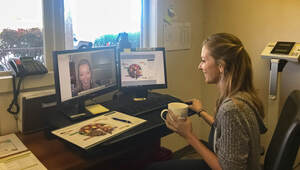 W: We’ve seen opportunities like these spring up as teams need to be particularly innovative under tough circumstances that prevent in-person connection. Speaking of teams, dream teams don’t come out of nowhere. A lot of work goes into creating and maintaining a strong, positive, and connected team. At NaRCAD, we talk a lot about what makes a good detailer, but what are some of the hallmarks of a strong detailing team? M: Team work is a really interesting thing to dive into. I reflected on this question, and think that a strong detailing team supports one another. That support can be helping each other out in the detailing session itself (e.g. co-detailing), or through communicating with each other about the providers we serve and in between detailing sessions (e.g. a prescriber moved from one detailing area to another). We want the team to be successful in moving towards our goals together. Another thing that COVID brought to my attention is that a strong detailing team also has a positive attitude. I really feel that during our transitions, everyone has been really positive and embraced the changes.  W: You’ve shared a lot of examples of how your team regularly communicates at various points during a detailing campaign, which shows a culture of checking in and making sure no detailer is left out. Can you speak a little about how that culture’s been built up at RxFiles and how you maintain it? M: I think Loren Regier, who is in charge of Projects, Transitions and Training, has been such an asset in the development of our program, has really emphasized checking in. He really showed us the value of that, and not only does he talk about it, he has made it very easy for someone to approach him and talk about how the detail went, both the successes and challenges. W: Having access to mentorship, and making sure a team-based approach is emphasized by leadership is key. It’s clear that the RxFiles team is doing well in adapting to these challenges faced by so many detailing teams. Maintaining positivity and seeing challenges as opportunities for growth is something that’s critical for teams to continue to have an impact. Have thoughts on our DETAILS Blog posts? You can head on over to our Discussion Forum to continue the conversation!  Biography. Marlys LeBras is a clinical pharmacist with the RxFiles Academic Detailing Program at the University of Saskatchewan. She completed her Bachelor of Science in Pharmacy at the University of Saskatchewan, her Hospital Residency with the former Regina Qu’appelle Health Region, and her post-graduate Doctor of Pharmacy (PharmD) degree at the University of British Columbia. An interview with Mary Liz Doyle Tadduni, PhD, MBA, MSN, RN, Education Consultant, Independent Drug Information Service and Expert Training Consultant, National Resource Center for Academic Detailing by Anna Morgan, RN, BSN, MPH, NaRCAD Program Manager Tags: Detailing Visits, E-Detailing, COVID-19  Anna: Hi, Mary Liz! We’re excited to learn more about what the pivot to e-Detailing has been like for you as an expert academic detailer for over 16 years and a NaRCAD training facilitator. Can you tell us briefly how your role as an academic detailer at Alosa Health has changed since the COVID-19 pandemic began? Mary Liz: The restrictions on in-person meetings has resulted in all of my detailing visits switching over to phone or video calls. The number of providers I’ve been detailing has also considerably decreased due to time constraints and office restrictions related to COVID-19. In terms of the topics I’ve been detailing on, our team has been maintaining focus on delivering our planned modules, but I do discuss the impact of COVID-19 quite a bit with providers. Our current topic for Pennsylvania’s Pharmaceutical Assistance Contract for the Elderly (PACE) is dementia, which is important as it relates to COVID-19. Patients with dementia who reside in nursing care facilities in Pennsylvania can’t see their loved ones due to restrictive visiting policies. Primary care providers are dealing with the challenges and consequences of this every day – and academic detailers can’t ignore it. Anna: It’s crucial that detailers understand the ways COVID-19 impacts the work of frontline care providers. Mary Liz: Absolutely. With COVID, healthcare delivery has changed dramatically and there’s been a large increase in telehealth visits. Many providers in Pennsylvania are working from home and not going into the office or seeing only a limited number of patients in the office setting. Even if they are seeing patients in person, the process of seeing a patient has changed. The offices sometimes have front desk staff working from home and require patients to wait in their cars before entering the building. Primary care providers are still trying to adjust to all of this. You need to consider what is really happening on the ground for providers during your detailing visits – it’s part of your needs assessment. The needs of the primary care provider right now differ greatly from the pre-COVID era.  Anna: Assessing a clinician’s individual needs is an integral piece of a traditional academic detailing visit. How have you been able to implement AD in its intended form when detailing virtually? Mary Liz: The original model of academic detailing with Dr. Jerry Avorn has always been 1:1, face-to-face encounters, but that doesn’t mean you can’t have a productive visit virtually. It’s just another venue to deliver the evidence. I really do believe that it’s better to be in person, but delivering the evidence, no matter what the platform, is better than having a provider not know what they need to deliver the best care. Anna: You’ve carried out this traditional, in-person model for over 16 years – what challenges have you faced when detailing providers virtually, especially during the pandemic? Mary Liz: Time has been a barrier due to the overall stress on the healthcare system. There are also more distractions when visits are done virtually because providers are taken out of a controlled office setting. A provider could be home with their kids, or even driving in a car during a visit. You never know where a provider will be during a virtual detailing visit. Some offices in my area also aren’t picking up their phones, so you can’t have conversations on the phone or "stop in" for a cold call. Having a scheduled in-person visit with a provider is much easier than trying to connect with a provider over Zoom. You add another step to your process when you have to work through technology glitches. Virtual platforms or telephone calls can also be difficult for providers who are visual learners. You need to be creative with the way you share materials. But there are many similarities to in-person visits; no visit is “one-size-fits-all”. You need to consider the provider, their situation, and their environment and decide what will be the best way to deliver the evidence. 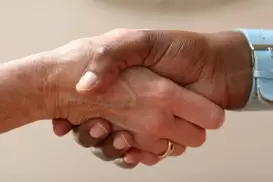 Anna: You’re right! It’s never one-size-fits-all when it comes to academic detailing. This has become even more evident as programs around the world have pivoted to e-Detailing. Do you believe that virtual visits can be as effective as traditional, in-person visits? Mary Liz: I do. It may not be as personal as an environment, but if you have a relationship with the provider, it shouldn’t matter whether it’s in person or virtual. I would continue to detail virtually in the future if a provider requested it, but I do favor in-person visits – it’s what I’ve done for so many years and I’d rather see the providers face-to-face. You get even more out of a detailing visit when you have that interaction. Anna: There’s certainly something to be said about the impact of the original model’s focus on in-person, 1:1 interactivity; it’s what has been studied for many years as effective and impactful. In a time where being flexible is critical, what are some tips you would offer to detailers during this time? Mary Liz: It’s crucial that you’re attentive to the provider you’re detailing. Continue to focus on the needs assessment. While you need to communicate your key messages, if you aren’t doing a proper needs assessment, you aren’t operating under the guidelines of academic detailing, which is all about listening and being interested in how someone is practicing. This leads you to be able to provide the evidence in the most effective way. Also, remember to be patient with providers! They’re still adjusting to this new world and they may even have questions about the impact of COVID-19 on the future of healthcare, as well as on their place within the healthcare system. Mitigate that impact by offering providers community resources that will support them through the pandemic – if you do that, then you’re fully realizing the true purpose of academic detailing as a supportive service that’s customized to real-world challenges. 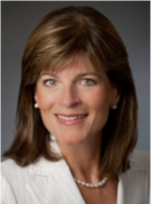 Biography. Dr. Mary Liz Doyle Tadduni’s background has included critical care and medical-surgical nursing, nursing administration, and hospital administration in major university teaching hospitals in the city of Philadelphia. Dr. Doyle Tadduni is a training facilitator at NaRCAD, and an academic detailer with the Independent Drug Information Service of the Alosa Foundation. Dr. Doyle Tadduni is a BSN graduate of DeSales University. She completed her MSN, with a concentration in Nursing Administration, from Widener University. Dr. Doyle Tadduni was awarded the MBA degree, with a concentration in Healthcare Management Services Administration, from Widener University where she was the recipient of the Healthcare Management Services Administration’s Student Excellence Award. Following her graduate work in both nursing and business, Dr. Doyle Tadduni completed her administrative residency at the Hospital of the University of Pennsylvania in Philadelphia. She completed her Ph.D. in Nursing from Widener University. Dr. Doyle Tadduni presented her doctoral research, “Terrorism Preparedness: Perceptions of Connectivity of Emergency Nurses of the Emergency Nurses Association,” at the 10th Annual Interdisciplinary Research Conference in Dublin, Ireland.  The past few months have represented incredible and unexpected challenges to the world of AD, encompassing everything from adjusting to brand new work routines, transitioning AD materials into a virtual format, and deciding exactly which corner of your workspace had the best lighting for all the videoconferencing meetings being scheduled in place of face-to-face ones. The pandemic has largely disrupted many of the best laid plans of 2020 for a majority of us. However, through all of the obstacles that the COVID-19 pandemic has represented, the NaRCAD team has also seen incredible resilience and adaptability from the AD community as we take on these challenges together.  We've seen the AD community persevere even as colleagues find themselves continuing to devote much of their time to pandemic responses, with AD project plans being forced to adapt. For a profession that prioritizes the benefits of face-to-face conversations, e-Detailing has given us all an opportunity to explore adaptations to the original model, encouraging AD community members to connect to each other in new ways, and leaning on one another’s experiences and expertise to clear hurdles. NaRCAD's response and virtual offerings have been shaped by your feedback, gathered through continuous conversation, as well as through our Needs Assessment Survey. We have continued to see record breaking attendance at our 2020 Webinar Series and our e-Detailing Community of Practice opportunities, with a focus on facilitating richer and deeper conversations and resource sharing. Our Peer Connection program has launched with a diverse cohort of detailers and program managers, forging brand new partnerships to tackle shared goals, sometimes from thousands of miles away.  We've also just launched an exciting new space for ongoing discussion on all things AD via our Discussion Forum, with threads on subtopics ranging from program sustainability to addressing clinician stigma and exploring e-Detailing’s potential. We're proud to note that during a time where there are fewer opportunities for in-person connection, our active community members are sharing and learning together more than ever before. We're committed to fostering connection and providing support to all of you who are working hard to improve care for so many patients who need it most. As we continue to navigate all that comes next, we invite you, our expert program staff and detailers in the field, to continue to share your successes, challenges, and best practices in e-Detailing. Each of your stories adds to the strength and knowledge of our community, from those who are just beginning to navigate e-Detailing to those who are veterans at this approach. We invite you to connect with us through registering for upcoming webinars and roundtables, taking a minute to fill out our Needs Assessment Survey, introducing yourself on our forum, or writing to us at [email protected] with thoughts on what you would like to see from us in the near future. In support, The team @NaRCAD
Overcoming the Impossible: Pivoting to Meet the Needs of Family Physicians During COVID-196/10/2020
An interview with Lindsay Bevan, MScHQ candidate, Project Manager, Primary Care Academic Detailing Service, Centre for Effective Practice by Anna Morgan, RN, BSN, MPH, NaRCAD Program Manager Tags: COVID-19, Detailing Visits, E-Detailing, International, Program Management 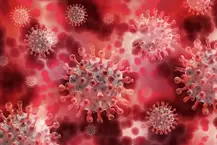 Anna: Hi Lindsay! Thanks for chatting with us today about the exciting work happening at Centre for Effective Practice (CEP) in Canada. Can you tell us about your role and share some highlights from your team’s recent work? Lindsay: I’m the manager of the primary care academic detailing service at CEP. We have a provincial service, which started in March of 2018 that serves family physicians across Ontario. Prior to our current service, we have run services in long-term care to support appropriate prescribing as well as primary care to support diabetes management. Our current service is still growing, but we’ve served just over 880 family physicians to date. Our focus has mainly been around opioids and chronic pain. We were just about to launch a series of “visits” (campaign topics) on prescribing in older adults, but we quickly pivoted to meet the needs of family physicians and began working on a visit around managing primary care in the COVID-19 context. 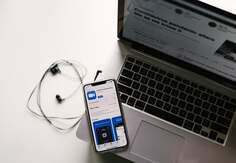 Anna: It’s so important to understand and meet the needs of family physicians when it comes to academic detailing, especially during a tremendously stressful time. Can you tell us a little bit more about the COVID-19 visit and the process behind its launch? Lindsay: Our provincial government declared a state of emergency in Ontario on March 17th, so we knew COVID-19 would be top of mind for our physicians and that they’d need more information. We also knew that we’d have to deliver the visits virtually, which was a fairly new territory for us. We had to modify our usual content development and detailer “upskilling” (bringing detailers up to speed on the content, key messages, and evidence around the topic) processes in order to meet the demands of family physicians by getting them information around COVID-19 when they needed it. The content development process for our other visits typically takes six months, with the detailer upskilling taking the last month and a half of that six-month period. COVID-19 turned everything upside down and made us rethink what we assumed was impossible. Within two weeks of the declaration of emergency, we started pulling together content for our COVID-19 resource centre (clinical tool for this visit, which is also available to all primary care providers), one week later we started training our detailers and within a month, we were delivering virtual visits to family physicians. 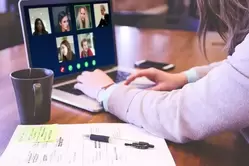 Anna: It’s impressive how quickly your team was able to launch this visit. COVID-19 is different from other topics that your team has focused on because the information and guidelines are continuously changing. How has your program kept detailers up to date? Lindsay: The detailer upskilling process for other visits includes weekly webinars to review key messages and the surrounding evidence, and a two day in-person workshop where detailers get to practice their visit discussions with each other and family physicians prior to launching visits. We also use a content development team for our detailing tools and bring those tools to the detailers to review when they’re about 90% complete. We typically don’t edit or change those tools after visits have begun. For our COVID-19 visit however, the detailer upskilling weekly webinars and the content development for our ever-evolving online COVID-19 resource centre have been continuous, ongoing processes. Our detailers have also taken on a larger role within both processes. Each detailer has been responsible for searching for, appraising and synthesizing information on a specific sub-topic of COVID-19, and then submitting this information for inclusion in our resource centre as well as presenting it at our weekly webinars to their fellow detailers. Our detailers need to be up-to-date on the emerging and evolving evidence and jurisdictional guidance around COVID-19 because family physicians don’t have time to sort through all the information being made available to them daily during the outbreak. Anna: It’s critical to provide physicians with the most up-to-date information, especially in situations like the COVID-19 pandemic where they’re bombarded with new recommendations and guidelines from multiple sources on a daily basis. How many COVID-related visits has your detailing service provided to physicians during this time? Lindsay: We’ve had 95 initial visits to date and approximately 12% of those visits have been with physicians whom we’ve never detailed before. We’re just starting to reach back out to physicians to see if they would like a follow-up visit since evidence has evolved and challenges have changed since we first started. The initial conversations were focused on testing, assessing and managing patients with the virus, and we’re now seeing those conversations shift to focus on resuming primary care services within the COVID-19 context. The detailers have done an amazing job in transitioning their detailing conversations to ensure they’re always covering the emerging areas of interest and need for family physicians. We’ve seen little to no requests from physicians for detailing visits on anything but COVID-19 or on maintaining care in the context of COVID-19, which speaks to the impact this topic has had on family physicians.  Anna: Wow – it’s amazing that your service has been able to detail so many physicians on COVID-19 while also recruiting new ones. Lindsay: Yes, overall, the visits have been well-received. We were a bit more cautious with our approach to promoting our COVID-19 visit and recruiting new family physicians. We didn’t want to add to the current noise at this time. Instead, we took a more passive but strategic approach, like adding a banner to our website where family physicians can quickly sign up for a visit, and having our partners share our visit and resource centre with their membership base. One of the neat things about this visit is that because we’re offering it virtually, we’re able to expand our geographical reach and provide our detailing service to more physicians. 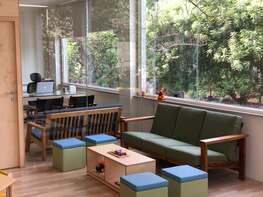 Anna: Using a virtual platform certainly has its pros, especially within the world of academic detailing! What has your program’s experience been like with integrating e-Detailing into your service? Lindsay: The transition wasn’t unsurmountable for our detailers because they are quick learners, and we’ve had a lot of support through the resources offered by NaRCAD and our partnership with the Canadian Academic Detailing Collaboration (CADC). We also did internal virtual training sessions with our detailers where they were able to practice using all the features of the Zoom videoconferencing platform. Overall, it’s been a positive learning experience, and one that has furthered our team’s ability to be adaptable and enhanced our problem-solving skills. We do feel however that there’s been an impact on the detailer-physician relationship since we’ve transitioned to virtual detailing, especially for the 12% of family physicians who are new to our service. When a detailer is in a physician’s practice, they can see how busy a waiting room is or how stressed the staff appear to be. When family physicians join a virtual detailing visit, it’s much harder to gauge what kind of day they might be having and adjust the discussion accordingly. Furthermore, the act of going into a physician’s practice itself can create goodwill that helps establish and strengthen the detailer-physician relationship, and that opportunity is lost during virtual detailing.  Anna: That’s an excellent point. Observing the waiting room and interacting with office staff is also essential to a detailer’s needs assessment. Detailers lose this piece of a visit when the detailing is done virtually. Is virtual detailing something that CEP will continue doing once COVID-19 related restrictions are lifted? Lindsay: Our detailers and family physicians would like to return to in-person visits. There seems to be some conversations that lend themselves better to virtual communication, and others for which an in-person presence offers greater value and impact. When it comes to relationship building, in-person interactions still offer something special. We would also like to build off the momentum we’ve started with our virtual visits. We’re exploring the idea of offering virtual detailing to family physicians who would otherwise have their visit rescheduled due to extreme weather or to family physicians located where we don’t already have a detailer covering the area. We’ve all done what we thought was impossible in providing the majority of healthcare visits virtually. I hope that folks across the healthcare system will continue to use that momentum moving forward to increase access to care. 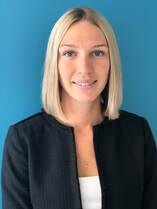 Biography. Lindsay Bevan works for the Centre for Effective Practice (CEP) where she collaborates with a team of amazing individuals to develop and implement evidence-based supports and services to help narrow the gap between best evidence and care in Ontario. As a project manager, she oversees the planning and implementation of the CEP’s primary care academic detailing service, which serves family physicians across Ontario. Prior to joining CEP, Lindsay worked at the University Health Network in the infection prevention and control unit, where she updated internal infection control policies and developed patient and provider educational material. Lindsay is currently completing her Master of Science in Healthcare Quality at Queen’s University. An interview with Nadejda Razi-Robertson, PhD, LCSW, Managing Director, Synergy Health Consulting and Andrew Suchocki , MD, MPH, Medical Director, Clackamas Health Centers by Anna Morgan, RN, BSN, MPH, NaRCAD Program Manager Tags: COVID-19, Detailing Visits, Opioid Safety, Rural AD Program, Stigma, Substance Use  Anna: Thank you Nadejda and Andrew for spending time with us today to discuss the impressive work being done in your leadership roles around practice transformation at Synergy Health Consulting. Can you tell us a little bit about Synergy and its impact on opioid safety-related care improvement? Nadejda: Our team works with health systems across the state of Oregon. Our first phase of work started several years ago when we were largely focused on helping systems implement the CDC guidelines around opioid safety. Our work has since evolved, and we’re now focused on helping clinicians develop medication-assisted treatment programs, integrate behavioral health into primary care, and address the opioid epidemic at the community level. We often use academic detailing as one of the many tools in our toolbox when we work with different health systems on opioid safety. We take the basic concepts, such as conducting a needs assessment and identifying clinician barriers, from the traditional model of a detailing visit, and implement them on a larger scale. Andrew: Many members of our team are practicing healthcare professionals in the field, which roots a lot of our work at Synergy. I take what I’m seeing on the ground as both an administrator and a provider at a busy clinical practice and incorporate those experiences into my work at Synergy.  Anna: It’s so important to build teams where members have varied expertise and professional training when working together on practice transformation. How have you incorporated academic detailing strategies into the work being done at Synergy, and how has it been received? Andrew: Some of the academic detailing work I’ve done has been with providers who need extra support from a peer, or from someone else working in the field. When it comes to opioids, chronic pain, and addictions in primary care, there’s a tremendous amount of stigma and information that was accurate at one time, but as we’ve shifted as a society, many primary care providers are yet to catch up. Stigma isn’t something that folks are actively choosing, it’s more of what they’ve been taught. Changing that culture of practice is much more difficult compared to asking prescribers to prescribe cholesterol-lowering therapy. There’s very little societal baggage when it comes to improving cholesterol than there is when it comes to destigmatizing addictions or chronic pain.  Nadejda: We use the same fundamental approach when working with systems, clinics, or individuals. We start with a needs assessment, provide a group training based on those needs, and follow that up with 1:1 academic detailing visits to address barriers, provide materials, and explore personal bias that may be getting in the way of providing treatment. I’m currently working to schedule a training for several providers in a rural county in Oregon. A number of those providers are X waivered (allowing them to prescribe medication therapy for patients with opioid use disorder), but they aren’t using their X waivers to prescribe buprenorphine. A needs assessment will provide me with a better understanding of what the challenges and barriers are, what is working well, and where there may be bias, stigma, or gaps in knowledge. We also use the needs assessment as a “listening session” that creates a sense of safety, fosters an experience that participants are being heard, and serves to “normalize” experiences across settings and practitioners. This process is also strategic in that it helps us understand where to focus our educational outreach and academic detailing efforts. The more we are doing this work, the more we are finding that this approach is effective in getting care teams, medical providers, and service providers across many sectors into increased “philosophical alignment” which is critical to effectively foster culture change around issues of pain, addiction, and trauma.  Anna: Bias, stigma, and gaps in knowledge around chronic pain and addiction are common, especially in primary care. We’ve found that many detailers have been successful in helping providers “catch up” to society and overcome personal bias through their detailing visits. Speaking of detailing visits, face-to-face visits have clearly been impacted by COVID-19. Can you tell us more about other ways that COVID-19 has impacted the work at Synergy? Nadejda: Again, we’ve gone back to the wisdom of the original academic detailing model. The needs of each setting have changed significantly, and we’ve been pivoting our work to meet those needs. Providers want to know how to best support their patients who are dealing with pain during this time. One thing we were able to provide early in the pandemic was a list of recommendations and resources around pain management for both providers and patients.  Andrew: We saw the need to adapt to massive changes related to COVID-19, and to do so essentially overnight. We’ve had questions about conducting urine drug screenings, initiating treatment over the phone, and maintaining the patient-clinician relationship. There’s also a shared vulnerability among providers and patients when visits are conducted virtually. Our patients have had requests for increased medication use, which is understandable because they’re not able to do activities that they’ve typically been able to do to keep themselves resilient. That conversation is a difficult one - in some ways it is easier because you don’t have to see someone in person, but it also makes for a very ineffective conversation because you’re not able to demonstrate your humanity through body language. Our team is struggling to wrap our head around this as we try to provide leadership and guide clinicians who are looking to us, or our state, for collective ideas around this field and how we practice.  Anna: COVID-19 has certainly impacted the way we think about responding to changing needs for those who are trying to manage their pain. Can you tell us about some of the other major changes you’ve seen in pain management over the past few years? Andrew: The biggest thing I’ve seen is insurance expansion. We’ve known for years what you need to have effective pain management and how important it is to shift the idea of living with pain and accepting pain versus eliminating pain. We’ve seen Medicaid expansion and expansion of benefits, especially in the Northwest, that has given patients access to modalities that are effective for safer pain management. Historically, things we knew that worked like, gym memberships, physical therapy, occupational therapy, mindfulness, and chronic pain groups, were never paid for or weren’t available. As society has changed how it believes pain should be managed, we’ve started to see the insurance side supporting these modalities more. There’s also been heavy reporting on the opioid crisis in the media that has led patients to understand that opioids have risks. Nadejda: We’ve continued to grow and learn as a team over the past several years. Our entry point into communication around chronic pain and pain management has continued to be centered around assessing if patients and their care teams have an understanding about how pain works. We want to make sure that clinicians have the proper training and are up-to-date on evidence and resources. Andrew: We’ve known some of this information about pain management and how pain works for a while, but it takes many years to take what we know from as a research perspective and translate it into practice. One of our roles at Synergy is to accelerate that. We’re seeing our evolution as a group mimic and reflect the experience we’re having as a culture as we start to dial in to the most effective ways to manage pain.  Anna: As Synergy continues to respond to changing societal needs around pain management, what insights can you share about the impact of academic detailing to date? Andrew: One thing I’ve learned about academic detailing is that it’s only as effective as your intervention across an entire system. I’ve realized that any work that I’m doing is irrelevant unless I’m addressing the entire system and the culture. If the front desk staff isn’t on board, if the medical assistant isn’t a believer, if the nurse doesn’t understand addiction, if the CEO doesn’t understand that the health system is already treating these patients, there will be challenges that will be harder to overcome. Nadejda: Because academic detailing has been an arm of a larger change approach we’re using, it’s hard to measure its effects. We don’t have data to show that only detailing has moved the needle around these topics in these ways. Sometimes I see academic detailing as the “cherry on top” after there’s a lot of work that’s been done in prepping a system. I’ve recently been doing practice facilitation work with providers and clinics just to understand the barriers in a system—there’s an art to the change process in the pain management space. Academic detailing comes in after you’ve truly understood what the barriers are. After you understand the barriers, you can bring in nuggets of evidence and information in a way that the system is ready to receive. 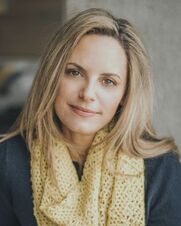 Biography. Nadejda Razi-Robertson is the Managing Director of Synergy Health Consulting, as well as Synergy’s project lead for the Oregon Health Authority’s Prescription Drug Overdose Prevention Project. Nadejda is a practice facilitator within health systems around the State of Oregon and provides technical assistance to clinics that are focusing QI efforts around safe opiate prescribing, MAT program development, and behavioral health integration. Over the past twelve years, she has worked in private practice with a specialty in trauma treatment, as a behavioral health provider in two Federally Qualified Health Centers (FQHCs), and as a consultant with Oregon’s Coordinated Care Organizations (CCOs) and the Oregon Health Authority supporting efforts in addressing the opioid epidemic throughout the state of Oregon. 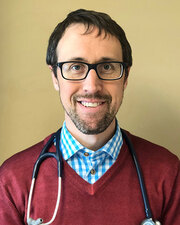 Biography. Dr. Andrew Suchocki is a family physician with additional training in Preventive Medicine. He has worked in underserved medicine with a focus on chronic pain and addiction for ten years, and has been a medical director at an FQHC in the Portland, Oregon region for the past five. Andrew provides educational outreach and consultation in the areas of system change in primary care around opiate prescribing, MAT system design and capacity growth, coordinated specialty care, and reducing risk. Dr. Suchocki is an Oregon Opioid Prescribing Guidelines Task Force member and Oregon Medical Board consultant. He provides technical support and academic detailing for the Oregon Psychiatric Assistance Line (OPAL) which provides immediate referral sources for primary care. Dr. Suchocki also provides strategic planning, creation of innovative clinical decision support tools, physician mentoring, and health system process mapping for Yamhill County Health and Human Services, Community Corrections and Specialty Behavioral Health. He is a regular presenter at national and international pain related conferences. An interview with Sarah Ball, PharmD, Research Assistant Professor, Division of General Internal Medicine, Medical University of South Carolina and Megan Pruitt, PharmD, Clinical Pharmacy Consultant, SCORxE Academic Detailing Service and Assistant Professor, Department of Clinical Pharmacy and Outcomes Sciences, Medical University of South Carolina by Anna Morgan, RN, BSN, MPH, NaRCAD Program Manager Tags: COVID-19, Opioid Safety, Stigma, Substance Use, Training  Anna: Hi Sarah and Megan- thanks for taking the time to chat! Can you tell us a bit about your program, SCORxE, and how your AD work has concentrated on improving opioid safety? Sarah: SCORxE began in 2007 as an academic detailing service at the South Carolina College of Pharmacy and is now part of the Medical University of South Carolina (MUSC) College of Pharmacy. Our current efforts are around addressing the opioid epidemic. We’re fully funded by the South Carolina Department of Health and Human Services, and our agreement talks about bringing together quality initiatives for safer opioid prescribing and expanding access to MAT. We’ve been able to effectively bring together quality initiatives from different state agencies that span prevention and treatment. This braiding has been a unique experience for our academic detailing service. Regardless of the specific topic, our detailers promote opioid risk reduction strategies, help recruit and support MAT providers, and work to reduce stigma around MAT. We’re currently shifting our focus from chronic pain to acute pain. We’ll be detailing both primary care providers and surgeons on post-surgical pain. Anna: Detailing surgeons is a unique approach – we’d love to hear about the results of that process in the future. And you’re working on other topics outside of opioid safety, too – tell us more. Sarah: Our providers always welcome new topics. While our focus is on the opioid epidemic, we try to expand our content reach when possible. We recently detailed on depression and anxiety screening, and touched on alcohol use disorder in our topic on naltrexone. We’ve always offered CME credits and our current strategy is shorter and more focused visits that offer a half hour of CME credit, as opposed to one or two hours of credit. This allows us to have multiple visits with each provider and to individualize next topic selection. Megan: As a detailer, it’s helpful to have a menu of shorter topics that providers can choose from – it makes our visits more flexible.  Anna: Speaking of flexibility - how are you continuing to detail and run your program given the current COVID-19 pandemic? Sarah: We haven’t previously engaged in virtual visits or e-detailing. We’re planning to reach out to our network of academic detailing colleagues who’ve had e-detailing visits in the past to see what their experience has been like. It’s times like these that show how valuable it is to have a network of academic detailing services. Being able to share ideas and find out what other folks have done will help us determine what will work best in our state. Megan: We’ve been using the past few weeks to work on creating materials and scripts for upcoming topics. It’s been a good time to refresh on a lot of our content and update various internal documents. I’m going to begin reaching out to providers within the next few weeks and gauge their interest and comfort level in using a virtual platform. Sarah: We know this is a difficult time for primary care providers, so it’s important for us to be compassionate in how we go about scheduling visits. We want to be sensitive to our providers’ time and respect what they’re going through, while still offering our detailing service around topics related to the opioid epidemic.  Anna: You’re not alone in figuring out this balance! You also mentioned that peer learning is an important component to a successful intervention. Can you tell us about your own peers on your team, and how they enhance your overall detailing service? Sarah: Our program is under the College of Pharmacy, so we’ve recruited all our detailers from there and they’ve all been clinical pharmacists. We’re fortunate to have pharmacists because they’re well-respected among providers we visit. We have two full-time detailers, which is a privilege, and they’re very passionate about their work. Being able to have two people fully commit to detailing is far greater than the number implies. Both of our detailers have different personalities and different experiences to share – I think they complement each other very well! Detailing can be lonely, though. When you have more detailers in your program that add up to two full time equivalents, what we have had in the past, you have more people sharing experiences during debriefs and more people to bounce ideas off; there are pros and cons to both scenarios.  Megan: My colleague, Lauren, and I come from different clinical backgrounds. When we work on our content development and role playing, we’re able to help each other consider things differently. It’s been fun to work with somebody who differs so much from me! Anna: It sounds like you balance each other out well. How are the detailers in your program trained? Sarah: All of our detailers have gone through pretty intense academic detailing training on the marketing of evidence-informed clinical ideas. Our most recent hires have gone through NaRCAD training, but before there was a NaRCAD, our pharmacists went through a training developed by a group in Australia. That training gave us a step up on everything when we first started our program, as NaRCAD also does with programs just getting started. We garnered our baseline of how we develop content, how we develop our supporting materials, and essentially how we put together our whole intervention. Anna: It sounds like the detailers in your program are trained well and prepared for the field. Do you have certain strategies for getting in the door? Are there key stakeholders who your program has connected with that have helped you to do this? Megan: Showing up at the office has repeatedly proven to work for us. We bring a letter to share with the first gatekeeper at the front desk, so that we can get face-to-face time with the providers for introductions. We’re usually able to schedule a meeting fairly easily after that. If we can’t meet with the provider face-to-face, we try to speak with the Office Manager. Recently, we’ve been leveraging our group presentations at clinics to get more 1:1 visits. We try to promote our detailing visits during our presentations and grab contact information from providers afterwards. We’ve also found that it’s been helpful to stay in the break room at an office after a visit - we might stay there all day and introduce ourselves to a number of providers who end up wanting to either schedule a visit that day or in the future. We’ve found great success in being present for providers when they’re ready. 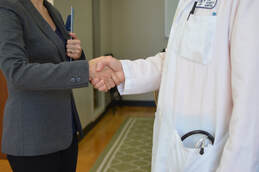 Sarah: When you can get face-to-face with the providers for a brief introduction, it’s a beautiful thing-it’s how we’ve gotten most of our visits over the years. When we first started, gaining access happened in different ways. We had champions in the area that supported what we were doing, and we could use that to get our detailers in the door. Our program was also previously part of a demonstration project where providers were required to have an academic detailing visit as part of the initiative. I would say that our cold calls became “warm calls” during that time because all the offices and providers knew we were coming. Anna: I’m sure having providers in the area know about your detailing service has helped to build your program. Can you tell us more about how your program is working towards sustainability? Sarah: We’re more sustainable than we’ve been for a while. Part of that is due to the funding that we have for opioid-related topics, but it’s also been due to the effort our program has put into effectively bringing together different quality initiatives over the years. We’ve had funding come in from multiple sources in that process. One agency asked us to take on the topic of naloxone for pharmacists--our ability to respond to such requests helps up strengthen relationships, and may help us with future sustainability. It is also important that our interprofessional teams at MUSC see value in academic detailing. Additionally, our detailers help us with sustainability through their visit documentation and tracking. The data they collect is included in our reporting and helps illustrate the value of academic detailing. Our clinical pharmacists are amazing people, and they both bring so much to what we do in the academic detailing world– programs are only as sustainable as the strength of their individual detailers! 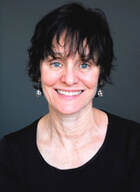 Biography. Sarah Ball, PharmD is a Research Assistant Professor in the Division of General Internal Medicine at the Medical University of South Carolina (MUSC), with a focus on patient-centered care, patient safety, and educational outreach. She has had direct involvement with academic detailing for over twelve years, beginning with the development and implementation of the SCORxE Academic Service under the SC College of Pharmacy in 2007. Current efforts include the integration of research and programmatic opportunities to identify interventions that change prescriber behavior to reduce the risk of opioid overuse, misuse, abuse, and overdose. Dr. Ball is currently leading the MUSC team partnering with the South Carolina Department of Health and Human Services for the provision of drug utilization review (DUR) services, which includes educational outreach to primary care providers and surgeons. Dr. Ball has twenty plus years with a career focus on improving patient care through the application of technology and effective communication of clinical knowledge, information, and data-derived findings. She is a graduate of the Medical University of South Carolina, where she received both a B.S. in Pharmacy and Pharm.D. 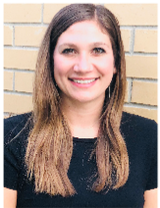 Biography. Dr. Megan Pruitt is a South Carolina Offering Prescribing Excellence (SCORxE) clinical pharmacy consultant and assistant professor in the Department of Clinical Pharmacy and Outcomes Sciences at the Medical University of South Carolina in Charleston, South Carolina. She received her bachelor of science in health science from Clemson University and her doctor of pharmacy from the South Carolina College of Pharmacy. She has published an Amazon ebook, Catalyst (pharmD): The Next Generation Pharmacy Student, and has previous experience as a community pharmacist at Federally Qualified Health Center in South Carolina. In her current role as a SCORxE clinical pharmacy consultant, she provides academic detailing visits to primary care providers on monitoring practices to promote safe opioid use and to reduce the risk of misuse and abuse in South Carolina. Bevin K. Shagoury, Communications & Education Director A Letter from Our Team Tags: COVID-19, E-Detailing 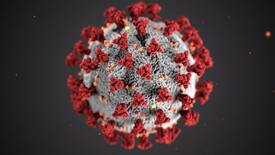 To our AD Community: By the time you read this, certain adjectives will have moved to the top of your frequently-used list. Words like “unprecedented”, “strange”, and “unsettling” are just a few that our home team has been using most commonly, and we’re sure that you, our community of AD peers, have been, too. During the COVID-19 pandemic, priorities are changing quickly and frequently—many of our public health colleagues have found themselves focused primarily, if not entirely, on the situation at hand, with critical response demands shape-shifting hourly. For those of us who spend our time more removed from frontline healthcare and have been focused on clinical outreach education or adjacent health improvement initiatives, challenging questions have arisen.
The answers to these and other questions are context-dependent, ever-changing, and don’t always have easy solutions. There are changes and disappointments to adapt to—for us, we’ve accepted the need to prioritize safety and postpone our March and June 2020 trainings (keep your eye on our Training Series page for reschedule dates), and we appreciate your patience as we wait to figure out next steps.  But we’re equally aware that there are just as many opportunities for growth. At NaRCAD, our goal right now is to support our colleagues as we all face the very real impacts of COVID-19. Concretely, we’re working hard to bridge some of the gaps that make the original, face-to-face model of AD temporarily impossible. We’re proud to share that we just launched our first e-Detailing Community of Practice, e-Detailing Toolkit, and are shifting focus on our 2020 Webinar Series this month to tend to the needs of those programs who must pivot to e-detailing and quickly. As such, we encourage you to complete our 1-minute e-Detailing Needs Assessment survey, so we can design tools and resources that fit your needs. Based on your responses, we’ll translate your needs into tailored support to help you realistically maintain the work that you can, rebalance your priorities, and focus on future programming efforts during a time when the present is hard to navigate. 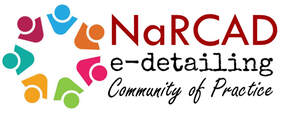 As we all try to take the current realities of our world one day at time, NaRCAD is dedicated to finding creative solutions for you all to continue supporting clinicians as best you can in making the kinds of decisions that will have a long-term impact on the health of their patients. We’re dedicated to growing with you as you inform how we grow and change our team’s priorities to match yours. Join us in our Community of Practice, send us an e-mail, or better yet—take a deep breath. As you all try to face the daily challenges that arise during a time unlike any other, know that our team is here when you need us, as your colleagues, and as community members who care. In support, The Team @ NaRCAD |
Highlighting Best PracticesWe highlight what's working in clinical education through interviews, features, event recaps, and guest blogs, offering clinical educators the chance to share successes and lessons learned from around the country & beyond. Search Archives
|

